- Reward types, points & expiry
- What card do I use for…
- Current Credit Card Sign Up Bonuses
- Credit Card Lounge Benefits
- Credit Card Airport Limo Benefits
- Credit Card Reviews
- Points Transfer Partners
- Singapore Airlines First & Business Class Seat Guide
- Singapore Airlines Book The Cook Wiki
- Singapore Airlines Wi-Fi guide
- The Milelion’s KrisFlyer Guide
- What is the value of a mile?
- Best Rate Guarantees (BRGs) for beginners
- Singapore Staycation Guide
- Trip Report Index
- Credit Cards
- For Great Justice
- General Travel
- Other Loyalty Programs
- Trip Reports

Full details: Thailand’s new vaccination and travel insurance requirements
From 9-31 January 2023, Thailand will require all visitors to be fully vaccinated, and some to purchase travel insurance. Here's the full details.
On Friday, Thailand announced that it would impose a vaccination requirement for all visitors, as well as mandatory travel insurance in some cases. Like most Thai government announcements, this happened on short notice without a lot of concrete details, leaving people to speculate on the implementation.
We now have the full details of the tightened requirements, which will provisionally run from 9 January 2023, 0100 hours to 31 January 2023, 1659 hours (and subject to further extension).
While it was previously thought that unvaccinated travellers would be barred entry altogether, there’s been a last-minute change that allows them to visit, subject to an on-arrival COVID-19 test (it’s not clear what kind of test or where it’ll be administered).
Singapore Airlines’ travel advisory page has been updated accordingly.
Vaccination requirement
During this period, Thailand will require all visitors to be fully vaccinated with one of the following vaccines.
No booster shot is required, and there is no restriction on how recent your latest jab must be. You could theoretically have been vaccinated back in 2021 with no boosters since then, and still meet the criteria!
Exemptions exist for:
- Children aged below 18
- Individuals who have recovered from COVID-19 at least seven days but no more than six months ago
- Passengers with Thai passports
- Transit passengers who are connecting to another international flight
- Those who are medically ineligible to be vaccinated (with supporting proof from a doctor)
While there was previously the option to present a negative COVID-19 test result in lieu of a vaccination certificate, this is no longer the case.
Airlines will be responsible for checking vaccination certificates at the point of departure, although obviously the immigration authorities can demand to see your certificate on arrival as well.
Travel insurance requirement
Passengers travelling to Thailand from a country where their return may be prevented due to COVID-19 must purchase travel insurance with COVID-19 coverage. The policy must cover the duration of their stay in Thailand, plus a further seven days.
Thai passport holders are exempt from this requirement, as are transit passengers.
For example, China requires all visitors to present a negative PCR test taken within 48 hours of departure, so a Chinese national travelling to Thailand would need to purchase travel insurance for the duration of his/her stay.
I believe that you should purchase travel insurance regardless of the regulations, but find the couching of this requirement to be very weird. I mean, if the concern is people running up expensive hospital bills in Thailand due to COVID, then shouldn’t the requirement apply to everyone? Why only have it in the case where testing is necessary? It’s almost like a “don’t ask, don’t tell” thing.
Singapore does require unvaccinated individuals to take a pre-departure COVID test, but since unvaccinated individuals won’t be permitted entry into Thailand in the first place, this is a moot point.
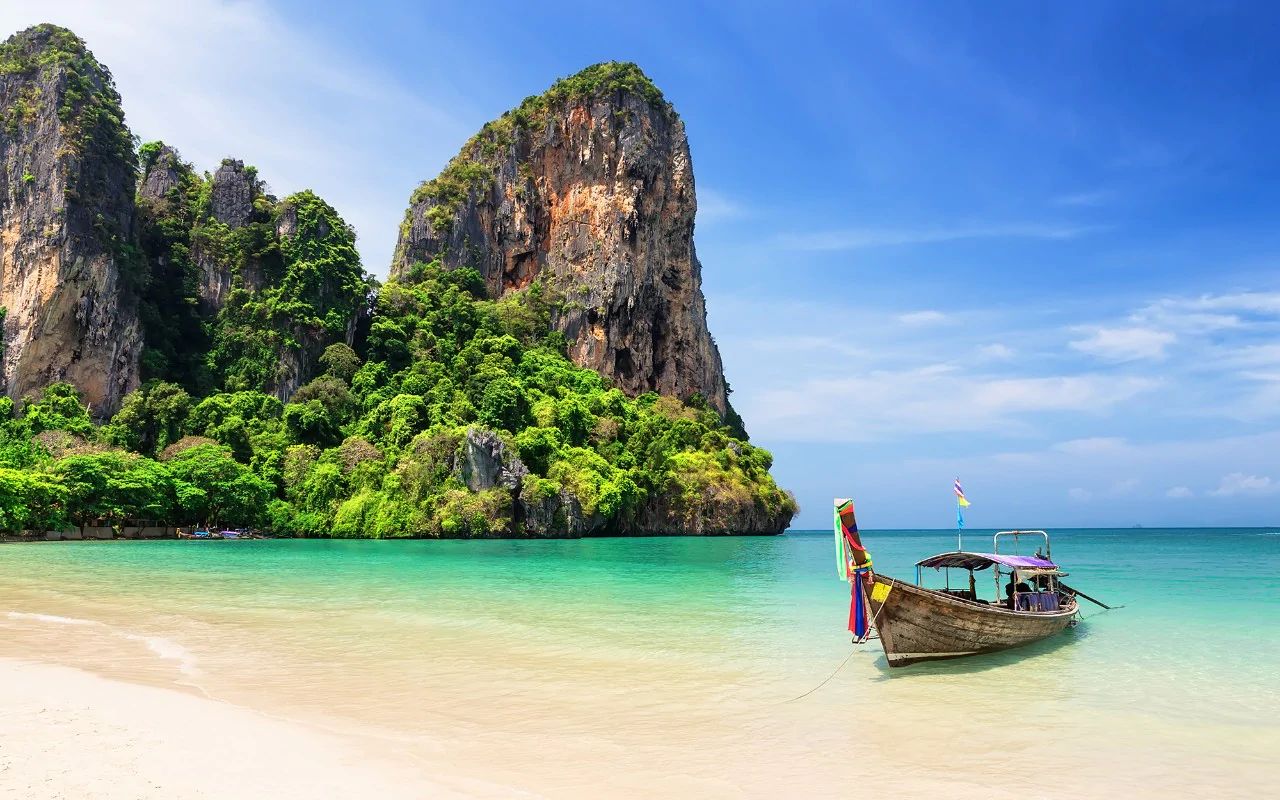
Thailand has unveiled the details of its vaccination and travel insurance requirements, and I suppose the good news is that the vast majority of Singaporeans will be unaffected. More than 90% of the population here has completed their primary series, and Singapore does not require vaccinated individuals to take a pre-departure test (hence Thailand won’t require us to buy travel insurance- though you still should!).
For what it’s worth, the ever-reliable Richard Barrow does not believe the vaccination certificate requirement will be around for long (do follow him on Facebook for the latest). In a way, that would be par the course for Thailand’s travel restrictions- introduced on short notice, then changed again shortly after!
Similar Articles
Hack: skip the immigration lines in kuala lumpur with priority pass, details: changi terminal 2 northern wing reopens, 19 comments.
It is a good move. People who refuse to take an extremely safe and largely effective vaccine for the benefit of themselves, their family, and society, should not expect they can avail themselves of all the benefits that society offers. Thailand has basically now said, if you won’t be a responsible citizen, then don’t come here. Great move I think.
Yup. I do think however that the issue people have is how little notice was given. i’m all for vaccination requirements, but the way the thai government announces things last minute really doesn’t help the case.
Such mimicry; such idiocy that misuse concepts completely beyond the understanding, well done wanker, you sucked it up all. next wednesday i have a diner a « Dinner of Fools » are you available?
Nope. I am in Thailand next Wednesday. And gladly fools like you won’t be around anymore. Fabulous. I suggest you spend the time you now have spare on Wednesday to climb out of your rabbit hole and educate yourself. That would be to the benefit of you personally, and everyone else.
my husband (32yo) got serious side effects on his heart from his second jab and became heavily handicapped. he is now no longer autonomous and lost his job. We are now living from the subsidies from govt. he had caught covid two times before w/o any issues. so u have the right to have ur own opinion but stop being so assertive on something you do not understand
Source: Trust me bro
Its silly for the Thai government to impose the insurance check on check-in agents. A passenger can easily give a country that does not that does not require testing for entry as their onward country or say they will be crossing the land border after their stay in Thailand. The agent will have no way to verify.
I wonder how many of them will actually bother.
And those who are traveling without luggage and with an e-boarding pass can bypass the check-in agent altogether.
as far as I know, as soon as there is even one requirement upon entry for an SQ flight, the e-boarding pass will not get issued.
What about other airlines? AirAsia relies heavily on online and self check-ins at the airport. Online check-ins are available up to 1 week in advance.
I already have my e-boarding pass for a flight to BKK next week and I’m traveling with hand luggage. We’ll see if the autogate allow me through without any document checks.
The re-introduction of checks is hastily done and the Thai government pushes the responsibility to airlines. There will be many passengers that will slip through the net.
“I believe that you should purchase travel insurance regardless of the regulations”. Sure, but buying insurance for 7 days longer than your intended trip’s length….?
That was a confusing one. I don’t know how policies work in Thailand, but for most policies I see in Singapore there will be automatic extension if your overseas sickness delays your return home.
Ok. good that I have an annual travel insurance policy. No need to headache hahaha
Local Thai news just reported that this new requirement has been scrapped by the government overnight.
Local Thai TV.
Is there a resource for seeing if travel insurance is needed? My wife and a friend leave tomorrow to take a long-delayed girls trip from the USA to Cambodia then Thailand. I dearly don’t want to have them entangled in some argument with me not there to fight on their behalf since both have health insurance.
https://www.singaporeair.com/en_UK/sg/travel-info/covid-19/
Requirement rescinded – thank God…
https://www.channelnewsasia.com/asia/thailand-removes-entry-requirement-proof-covid-19-vaccination-3192236
CREDIT CARD SIGN UP BONUSES

Featured Deals

© Copyright 2024 The Milelion All Rights Reserved | Web Design by Enchant.sg
- Environment
- Road to Net Zero
- Art & Design
- Film & TV
- Music & On-stage
- Pop Culture
- Fashion & Beauty
- Home & Garden
- Things to do
- Combat Sports
- Horse Racing
- Beyond the Headlines
- Trending Middle East
- Business Extra
- Culture Bites
- Year of Elections
- Pocketful of Dirhams
- Books of My Life
- Iraq: 20 Years On
Thailand reintroduces Covid-19 travel restrictions for all international tourists
Visitors now need to show proof of vaccination or recovery before boarding flights.
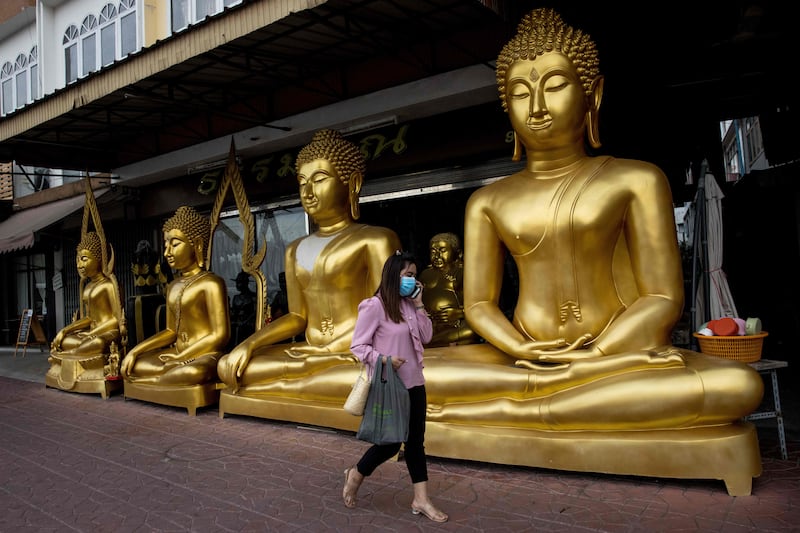
Thailand is preparing for an expected wave of tourists from China, with five million Chinese nationals projected to visit this year. AFP

Thailand has taken a step back in the removal of its Covid-19-related restrictions after reintroducing vaccine requirements for travellers.
From Sunday, all international tourists flying to the South-East Asian country need to show proof of vaccination against Covid-19 , or documentation of recovery from the virus.
Travellers will be asked to provide this proof before boarding flights with the airlines, which are responsible for ensuring they have the right documentation for travel.
Airline passengers who cannot provide proof of vaccination before flying will be subject to testing at their port of arrival.
The Civil Aviation Authority of Thailand confirmed the rule change on Sunday.

It comes as several countries around the world reimposed pandemic restrictions on travellers from China after it reopened its borders for the first time since the start of the global pandemic.
The US, India , Japan, Australia and France are among the nations that have set new rules requiring Chinese tourists to provide negative Covid-19 tests before admission.
Thailand is not asking visitors to show negative test results, or employing special restrictions on visitors from China. Instead, it is subjecting almost all international travellers to its new entry restrictions.
Visitors showing proof of recovery for entry must have had Covid-19 within 180 days and recovered no less than seven days before travel.
Authorities in Thailand recognise 16 vaccines, including AstraZeneca, Pfizer and Sinopharm. Travellers must have received a complete dose of the vaccine no less than 14 days before travel. A list of the approved vaccinations and the number of doses required are available on The Civil Aviation Authority of Thailand's website.
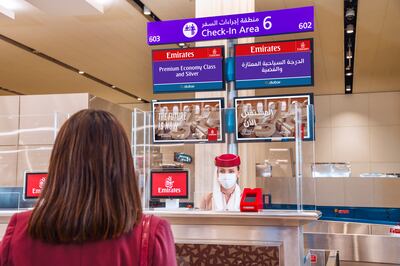
The amended rules do not apply to travellers under 18, Thai nationals or those transiting in Thailand.
Holidaymakers visiting Thailand from China or other destinations whose requirements might prevent their re-entry if they test positive while on holiday will also need to produce proof of a travel health insurance policy. Coverage must include a minimum of $10,000 for Covid-19 treatment during their planned stay, plus an additional seven days.
Thailand is preparing for an expected wave of tourists from China, with Thai tourism officials projecting about five million Chinese nationals will visit this year, according to Reuters.
China’s near total reversal of border controls that stemmed the spread of Covid-19 came into effect on Sunday, ending almost three years of strict entry requirements.
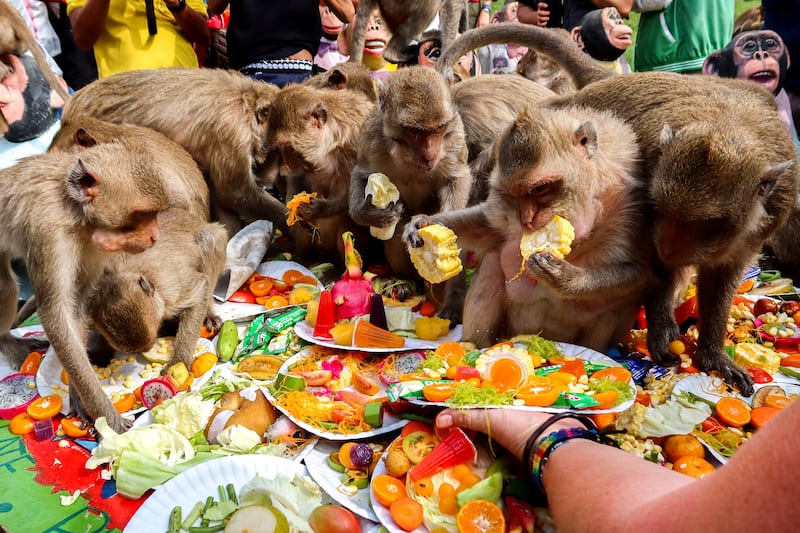
Monkeys eat fruit during the annual Monkey Festival in Lopburi province, Thailand. Reuters
Checking In
Travel updates and inspiration from the past week


Thailand travel requirements 2024: What travelers need to know
We aim to keep this post updated about Thailand travel in 2024 with official Thailand travel restrictions, requirements, and health and safety guidance. Our goal is to help you make informed decisions so you can travel confidently, safely, and responsibly in this new post-pandemic world of ours.
Since travel restrictions can vary by citizenship, we will be focusing our post on rules that affect U.S. citizens.
Last update: February 2, 2024. Originally published: November 2021.
Disclosure: This post contains some affiliate links. If you make a purchase through one of our links, we may receive a small commission, at no additional cost to you.
February 2024: “My husband and I are in Thailand for a two-month stay. There don’t seem to be any travel restrictions. Tourism is running normally, but many people still wear masks, especially in places like the metro or on ferries. Some businesses and attractions have closed since Covid. If you have asthma or other breathing issues, watch the air quality index (The Air4Thai app works well.) and plan your trip accordingly.” – Rachel Heller of World Heritage Net , Dutch traveler
At the end of the post, we share more on-the-ground perspectives from local residents and travelers to Thailand so you can get a sense of what to expect.
Table of Contents
Is Thailand open for travel? Can I travel to Thailand right now?
Thailand is currently open for foreign travelers.
As of October 2022 , proof of vaccination or negative COVID-19 test result are no longer required from travelers. In addition, proof of vaccination is no longer required to attend crowded events.
Travelers holding US passports can enter Thailand for tourism purposes without the need to obtain a visa for stays up to 30 days on each visit. Thailand temporarily extended this visa exemption to 45 days for arrivals previously. However, as of April 2023, visa-free entries has reverted back to 30 days.
Travelers can always extend the standard 30 days for another 30 days by applying at a local Immigration Office and paying 1900 baht.
Travelers from countries not on the visa exemption list must apply for a Special Tourist Visa (STV) to enter Thailand as tourists.
Thailand travel restrictions and limitations may sometimes apply only in certain regions. Monitor Thailand travel news here .
A new tourist fee will soon be required to enter Thailand, but the start date has been postponed as of December 2023. This fee will be built into plane ticket costs and is only about $9 US. There will be no payment on arrival if arriving by air, but it’s unclear how the fee will work at land and sea borders.
Quarantine rules in Thailand: What happens if I get Covid?
Travelers who test positive for Covid while in Thailand are asked to self-isolate for at least 5 days at the traveler’s expense. However, quarantine is no longer mandatory or being enforced.
Quarantine should end after taking a PCR test with negative result. Those with severe symptoms will be admitted to the hospital.
Can I travel to Thailand in May 2024? Can I travel to Thailand this Summer?
Travel to Thailand in May is open . Please read on for details and check back for updates.
What is it like to fly to Thailand BKK Suvarnabhumi Airport or DMK Don Mueang Bangkok Airport right now? Thai Airways reports that the face mask mandate has been relaxed. Airports can be busy at times and crowds may be difficult to avoid.
Do I have to quarantine when traveling to Thailand? No. See details above.
Does Thailand check COVID-19 symptoms of incoming travelers? Health checks are no longer common for incoming travelers.
Does Thailand require a negative Covid 19 test for travelers? No. As of October 2022, a negative Covid test is no longer required.
Does Thailand require a proof of Coronavirus vaccine for travelers? No. As of October 2022, a proof of vaccination is no longer required.
Do I still need to provide a negative Covid test or quarantine if I have been vaccinated? No. Travelers are no longer required to provide a negative Covid test or quarantine.
Is a booster shot required for travel to Thailand? At this time, booster shots are not required in Thailand. There is currently no expiration period set for the validity of vaccinations.
What Covid testing options are available for travelers in Thailand? PCR and antigen tests are available in Thailand. Foreign travelers can get a Covid test at the National Institute of Health, 14 Regional Medical Sciences Centers, and private hospitals in Thailand.
Covid PCR tests range from 2,500 to 10,000 Thai baht (approximately $74-$311). Test results are available within 72 hours. ATK tests are available for cheap at 711 convenience stores for 40+ baht.
See the list of Covid testing centers here.
What healthcare options are available to travelers in Thailand who get the virus? Thailand’s private healthcare services are generally very good. Hospitals and clinics in Thailand are open to foreign travelers.
Treatment for Covid-19 may cost more than 100,000 Thai baht. Travelers will pay for their medical expenses or use a travel insurance.
For travel insurance that covers Covid, check out Nomad Insurance by Safety Wing >
What service businesses and restaurants are open in Thailand? Restaurants, street food, malls, department stores, and other establishments are open in Thailand. Pubs, bars, karaoke outlets and other entertainment venues are now operating at their normal hours.
Are face masks required in Thailand? Wearing of masks is now voluntary in public and indoor places, except health care facilities. Some businesses may request face masks inside.
Are buses running in Thailand? Public transportation is available in Thailand. Masks are no longer required but still encouraged. A majority of riders still wear masks on public transit, especially in Bangkok.
Will Thailand impose new Covid restrictions? What’s next is difficult to predict. Historically, most countries impose COVID-19 restrictions when strains on the health care system might become unsustainable. Thailand has been relatively proactive when it comes to preventive Covid measures, balanced with the need to keep the tourism industry open.
How has the Coronavirus impacted Thailand?
Thailand reported its first case of Covid infection last January 2020. Although there have been outbreaks in the following months, Thailand was successful in containing the pandemic throughout most of 2020.
Unfortunately, in April 2021, the country experienced uncontrolled resurgence of infections, ranking Thailand fourth in the number of cases in Southeast Asia.
In response to the pandemic, preventive measures such as contact tracing, lockdown measures, and international travel restrictions were implemented. These slowed the country’s economy and Thailand’s tourist industry has been severely affected. Thailand’s State of Emergency ended September 30, 2022.
To revive tourism, the islands of Phuket and Samui reopened with a “Sandbox” program to vaccinated foreign travelers in July 2021. In October 2021, Thailand travel restrictions were eased for foreign travelers. In December 2021, the Test & Go program which allowed quarantine-free entry was suspended amid the spread of the Omicron variant.
In 2022, Thailand eased entry restrictions. The color-coded system, which placed limits on travel, dining, entertainment activities, and gatherings, has been removed.
Vaccinations in Thailand began at the end of February 2021. About 2/3 of the population have been vaccinated.
For the current situation in Thailand, including: total COVID-19 positive cases; total cases in Thailand; and COVID-19 testing in Thailand, please see the following Thailand Ministry of Public Health site and Facebook page .
What should you pack for safely traveling in Thailand?
😷 Face Masks – Face coverings are recommended in crowded public places. Find N95 masks at Bona Fide > or designer options at Vida >
💊 Medicine – Bring enough prescription and over-the-counter medication for your entire trip to avoid trips to the clinic.
💳 Vaccine Card Holder – Protect that paper CDC card when traveling abroad (if your country doesn’t offer a digital version). Get a simple plastic protector > or Vegan leather clippable > or Leather passport + card combo holder >
👃 Covid self-test – The most studied rapid antigen self-test with FDA emergency authorization. NOT valid to enter countries. Use for your own peace of mind. Order from CVS > or Walmart >
💧 Sealed water bottle – Make sure your reusable water bottle has a lid that’s not exposed to the air. We use one of each of the following: Shop insulated water bottles with protective lid > Shop water bottles with purification filter and protective lid >
✈️ Travel insurance that covers Covid – We’ve started using Nomad Insurance by Safety Wing for affordable evacuation, international medical, and trip coverage.
What do Thai locals and recent travelers say about visiting Thailand now?
What is it like to visit Thailand right now? It’s our goal to provide regular updates here from real people on the ground, to help potential visitors know what to expect. The following are subjective opinions only. Official travel guidance can be found above.
September 2023 – Peta and Jonas of Exit45 Travels , Australian travelers: “We are living a nomadic retirement and arrived in Koh Samui, Thailand, in July and are staying two months. Thailand, in general, is nearly back to pre-covid tourist numbers and you can feel an optimism in the air amongst the locals.
There are no travel restrictions here in Thailand, however, you will still see many locals wearing facemasks. Hospitals and some medical clinics are advertising Covid testing so it is accessible if required. There are certain tourist areas where you can visually see the aftermath of Covid i.e. deserted hotels that have fallen into disrepair, closed restaurants, etc., but in general, you will have no problems finding accommodation, restaurants selling great Thai food, massages, or shopping opportunities. It is now heading into the monsoon season here in Koh Samui so we have seen a huge reduction in tourists.”
May 2023 – Nat Deduck of Love and Road , Brazilian digital nomad: “I’ve been living in Phuket, Thailand for a year. Tourism in Thailand is back to normal, and apart from some Thais wearing masks, you probably won’t even remember that covid existed here. An interesting fact is that local Thais used masks way before the pandemic, so it’s a habit that got intensified after Covid.
Thailand’s tourism is in full swing. This high season (Dec-March) felt as busy as back in 2019 when we were here before Covid. Attractions, hotels, and places to visit are fully open and ready to service tourists.
Most tourists don’t wear masks, but if you feel the need to do so it’s available in every pharmacy, supermarket, and convenience shop. The same for the Covid tests, you can do it by yourself, or you can go to any clinic or hospital to do a PCR test if needed. Hospitals are back to regular services here in Phuket and Bangkok, my husband and I had to see a doctor and everything went smoothly. There was no restriction to be treated because of the pandemic, and no overflow covid cases.”
February 2023 – Michelle, Intentional Travelers, U.S. nomad: “We flew to Bangkok from Vietnam. Air Asia did not check our onward flight nor ask for any Covid documentation, only passports. Masking on the plane was not required but many wore face coverings, including all the crew.
Immigration wasn’t too long a wait at DMK in the evening. Just showed passport, boarding pass, took a photo, and fingerprints. At the moment, U.S. passports get 45 days in Thailand without a visa.
We later flew from Bangkok to Chiang Rai, took a bus from Chiang Rai to Chiang Mai, and flew out of Chiang Mai to Vietnam . Thai airports were playing recorded announcements advising passengers to mask and socially distance, though it wasn’t enforced.
The entire building where we stayed in Bangkok required masks in common areas. On BTS public transit, an announcement is made in English that mask laws have relaxed but face coverings are still highly encouraged. At least 90% of passengers wear masks on public transit.
In Chiang Mai and Chiang Rai, we also saw notices recommending Covid precautions at certain establishments, many had hand sanitizer available at the entrance, however, we didn’t encounter any strict requirements.
Thailand seems back to normal and getting more busy with the influx of Chinese tourists returning. Businesses are open without restrictions. A lot of people wear surgical masks outside in Thailand, but masking was common pre-pandemic as well.”
October 2022 – Babs of https://mumsonflipflops.com , Belgian tourist: “ We’re travelling in Thailand with 2 small children for 2 months. Travel feels completely normal in Thailand. There are plenty of tourists and hotels are busy.
There are very few Covid rules still in place. You’ll see most Thai wearing face masks at all times, but nothing is expected or enforced. As a tourist, you don’t have to wear one. The one exception is on the Air Asia flight, you’re supposed to wear a mask there. Every store/building has a temperature scanner (hand scanning) and sanitizer that you’re expected to use. We haven’t been into contact testing etc as we’re fully vaccinated and all entry rules have been lifted for Thailand (we weren’t even asked for our vaccination proof).”
September 2022 – Steffi of BeachBumAdventure , expat in Thailand: “ Tourism is slowly coming back to Thailand and the locals are really keen for tourists to return.
In Bangkok you will still find many Thais wearing masks, even outdoors, although this is no longer a government requirement. On public transport most people are still wearing masks on trains and minivans and buses. In other areas of the country and on the islands, you rarely see people wearing masks.
Many hotels and restaurants are welcoming visitors although some ferry schedules are still reduced due to the low number of visitors. On quieter, less touristy islands some restaurants and shops still remain closed.
Healthcare in Thailand is very efficient if you attend a private hospital, therefore I recommend making sure your health insurance covers this. Many 711 shops offer ATK tests very cheaply (40+ baht) although PCR tests remain expensive (2000+ baht).”
July 2022 – Tania of Slower Travels , digital nomad from New Zealand: “My partner and I lived as digital nomads in Phuket, Thailand for four months in 2022. Now is a great time to visit Phuket. Everything is a little on the quiet side with reduced tourist numbers but the locals are so welcoming and happy to see you.
When we arrived, there was extensive requirements and testing involved. By the time we left, most of these had been dropped. However, most people are still wearing masks in crowded places, giving a feeling of safety.”
May 2022 Linnae – American traveler with family: “We really lucked out with our arrival to Bangkok scheduled for May 1st. We had originally planned to undergo the Test & Go program but they suddenly lifted the testing and quarantine requirements.
Applying for a Thailand Pass online, which is essentially the entry visa, was a straight forward process where you just have to complete the application, provide your vaccination details, and upload pictures of your shot records, passport, and insurance card. We have regular American-style insurance through Aetna, so it covered whatever the minimum requirement was. I think there was an option to purchase some sort of travel health insurance through a Thai company.
It took about 5 days to receive the Thailand pass, which was just a QR code attached to an email. Once we had the Thailand pass, we never had to show any other form of insurance or Covid vaccination when we went through immigration. The hotel check-in was completely normal- no extra documentation required other than our passports.
Our daughter did not have to test on arrival. As a minor, she was able to enter unvaccinated with vaccinated parents. There was an option to add her to our Thailand Pass in the system. She received her own QR code for immigration.
EVERYONE was still masked, inside and outside (even in the pool). I was surprised to see children younger than 2 wearing masks. Outliers would have been the odd westerner. Social distancing did not seem to be a requirement at all.
Restaurants/sites seemed open as usual. Closures due to Covid may not be clear on the business website. So if someone is set on a specific excursion or destination, contact the place ahead of time to make sure it is still open.”
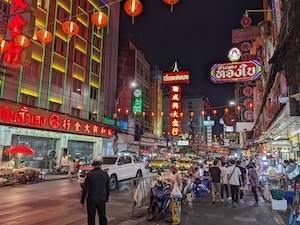
March 9, 2022 – Kristel, U.S. traveler: “My husband and I have been in Thailand since the start of 2022. In Bangkok, the typical hustle and bustle of the city feels similar to pre-covid days. Street food markets such as Chinatown is packed with both locals and foreigners while the temples are still fairly quiet depending on the time you visit.
With regards to restrictions, masks are still worn both indoors and outdoors and temperature checks are imposed when going into indoor spaces. Healthcare is easily accessible and rapid tests can be bought at a local 7-11 for very cheap. While a lot of restaurants have shut down, there are still plenty of good options and street food areas are staying busy and doing well. If visiting the islands, you can expect beautiful beaches without the crowds.”
February 11, 2022 – Abigail of I’m going on an adventure , British tourist: “My partner and I are currently travelling through Thailand for one month. We are in Phuket at the moment. Food and transport options are good with everything open and actually the area seems to have been revamped since a few years ago; its cleaner and better organised!
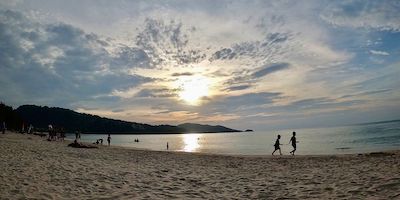
All areas are open and ready to receive guests. Face masks are still required to be worn however in the more populated tourist areas such a Patong no one seems to be using them as much. There is no contact tracing or daily testing required (except official PCR test). It’s always important to carry a face mask as some restaurants and activities will ask to have them on but in general the island so far has been very relaxed! The country still isn’t as busy as pre-covid which actually makes it an even better time to visit as it’s less crowded but there is still a nice holiday vibe.”
January 28, 2022 – Katy, American digital nomad: “ During our visit to Chiang Mai, we found that most businesses and restaurants in the Old Town area are open. Some are temporarily closed or have reduced hours, but enough were open that it wasn’t a problem. Bars are technically closed. Be aware that you can’t purchase alcohol at restaurants and stores after a certain time in the Chiang Mai province, I believe it’s 9pm now (but it keeps changing).
Travel restrictions are being followed closely by locals and visitors for the most part. Mask wearing and temperature checks are required at all businesses & shops and people do follow these rules. Contact tracing is also required (by scanning an app or signing a register), but we found that most people didn’t bother with this step.
The one exception is at the Chiang Mai Sunday market. Contact tracing (along with mask wearing and temperature scans) are firmly enforced there. Most of the Chiang Mai markets and walking streets are open, except for the Saturday Walking Street (which is closed) and the Night Bazaar (which is mostly closed and not worth visiting). There were some other foreigners in Chiang Mai but not many.
The city is used to having a larger number of tourists, so it didn’t feel too crowded and we didn’t have any issues with waiting in lines or securing tickets to popular attractions. Access to healthcare is easy and affordable in Chiang Mai (at least compared to what we’re used to in the United States). Booster shots are available to anyone (including foreigners) and you can get a PCR test for travel at the Chiang Mai Ram Hospital.”
January 2022 – Zoe Adventura , Australian: “ I moved to Thailand with my family in January 2022. The biggest difference between here and Australia is that everyone is expected to wear a mask all the time. Even children, and even while exercising. Most tourists don’t. Most people seem relaxed about everything, but occasionally we hear that the hospitals are full – which is pretty scary.
Travel restrictions – there are quite a few hoops to jump through to get to Thailand . We came for the Phuket Sandbox – which meant we had to book a 7 day stay in a government approved sandbox hotel, have a specific insurance paid for, and also get RT-PCR tests before travel, plus 2 more in the first week. During this week we were free to travel around Phuket. For us, it was actually pretty seamless.
Before entering Thailand you need to get a Thaipass, which can be a bit tricky, but there is plenty of information online about what you need to do. There are facebook groups which can help with any questions, and you can apply multiple times if you need.
As far as things being closed, the tourist areas of Phuket are completely different. Patong has restrictions on nightlife and alcohol service is restricted. A lot of shops are closed and boarded up in Patong, which is sad to see. On the other side of the island which typically has less tourism, it’s much less noticeable. That being said, the hotel we are currently staying in is clearly operating on skeleton staff, with half of the rooms empty. I’ve only seen 3-5 other guests, and it is a little creepy. The staff are obviously doing the best they can but the common areas are neglected. Same story in the last hotel we stayed in. All activities are cancelled, kids club is closed etc.”
December 2, 2021 – Katy, American digital nomad, A Rambling Unicorn : “My husband and I flew from Istanbul to Phuket on Nov. 27 and then will fly to Chiang Mai on Dec. 4 when our stay in the Sandbox is complete. We have Tourist Visas and will be in Thailand for 60 days.
I arrived at the Phuket Airport in November 2021 and was amazed at the thorough measures put into place for international arrivals. All passengers were initially seated in an arrivals hall in chairs that were spaced apart for social distancing. After a check of our documents by workers covered in full PPE, we were led through 5 different stations that verified our documents and administered a PCR test on-the-spot. We were glad we had printed all of our documents out in advance – including our Thai Pass, PCR Test results and SHA+ Hotel booking. Passengers without printed copies had to print them out at a special printing station.
Thai locals take COVID very seriously. Everyone wears masks in public, even when riding open-air motor scooters. Contact tracing is managed via the MorChana app which everyone is encouraged to download. We are staying in a remote part of Phuket where some restaurants are still closed and our hotel is only half full. We haven’t encountered any lines at restaurants or crowds in this part of the island, quite the opposite actually.
Thailand is really particular about the COVID insurance. When we first applied for the COE (this was the precursor to the Thai Pass), we tried to use our World Nomads insurance and it was rejected. I’ve heard anecdotally that they only accept COVID insurance from Thai companies. I don’t know if that is true and/or if things are relaxed now that they’ve moved to the Thai Pass. When we re-applied, we bought insurance through a Thai company that specialized in Thai Pass and Tourist Visa insurance. It came with document that clearly stated COVID was covered with a coverage of 50,000 USD.”
Thailand Reopening: Phuket Sandbox Updates video published October 29 2021 See what it’s like in Phuket, with commentary from local Thai people in the tourism industry as well as recent travelers to Phuket:
Planning a trip to Thailand?
Check out our other Thailand travel resources: – Things We Would (and Wouldn’t) Do Again in Chiang Mai, Thailand – Bangkok Tourist Pass Review and Suggested Itineraries – Review: Kindred Spirit Elephant Sanctuary + Hill Tribe Homestay – Tips for Travel in Bangkok
If you have questions or updates about travel to Thailand during the Coronavirus crisis or post-pandemic, please let us know in the comments below.
~ Pin this post for later or share with friends ~
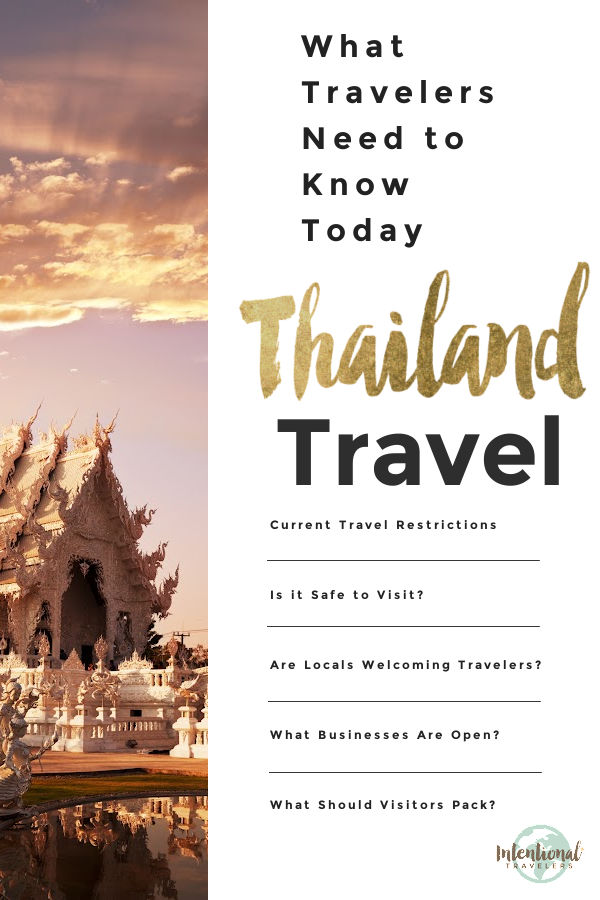
Disclaimer: Please note, travel restrictions change frequently. Readers must take responsibility for verifying information through official sources like the State Department and CDC, in respect to their specific situations. No responsibility can be accepted by Intentional Travelers for action or inaction as a result of information provided through IntentionalTravelers.com. Any information provided here is issued as general information only.
Similar Posts

Merida Mexico travel requirements 2024: What travelers need to know
We aim to keep this post updated about Merida Mexico travel in 2024 with official Yucatan travel restrictions, requirements, and health and safety guidance. Our goal is to help you make informed decisions so you can travel confidently, safely, and responsibly in this new post-pandemic world of ours. The Covid situation in Merida, Mexico is…
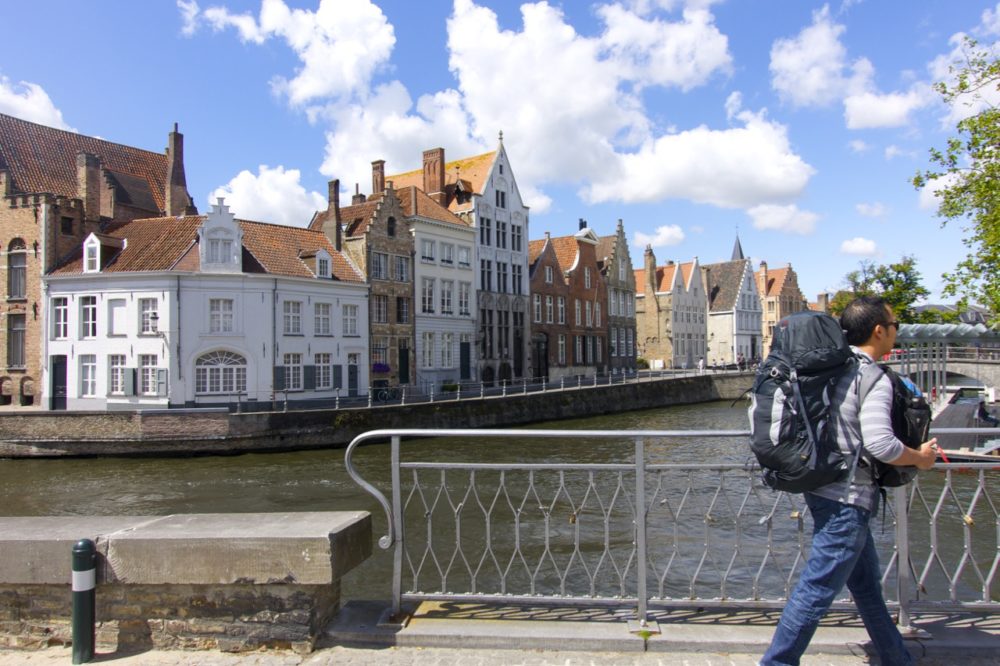
10+ Items We Take With Us on Every Trip
We pack and re-pack our bags a lot as Digital Nomads. Typically, we travel with a backpack and laptop bag each; or a rolling carry-on suitcase and a laptop bag. Our trips can be a house-sitting gig just a few miles away, to visiting our Peace Corps community in Jamaica, or country hopping around Europe…
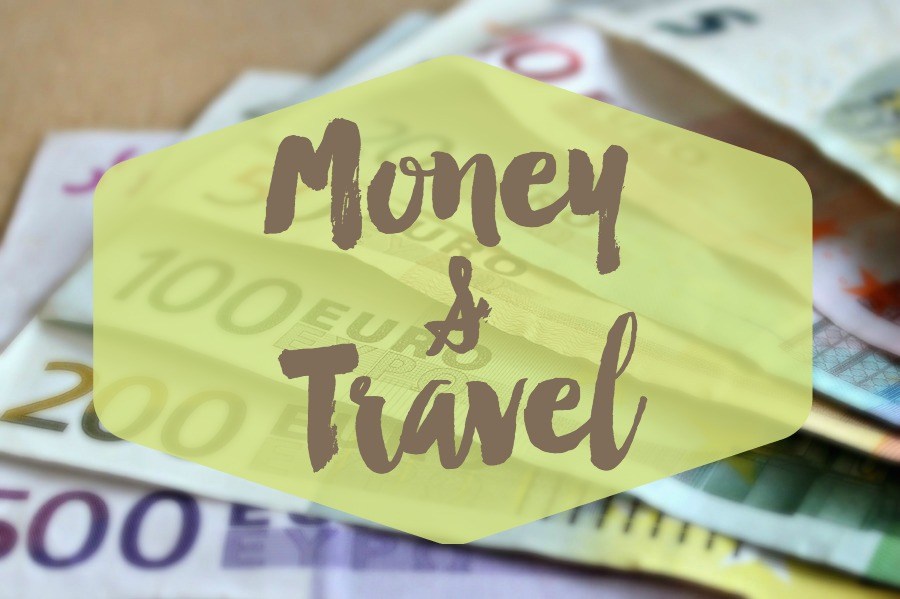
Unofficial Guide to Cash, Credit Cards, and ATMs for International Travel
How much money should I bring when I travel? Should I exchange currency before I go overseas? What’s the best way to carry cash when I’m abroad? What ATM cards or credit cards are best for international travel? In this post, we’ve put together our best tips for money and travel. Note: These tips are…
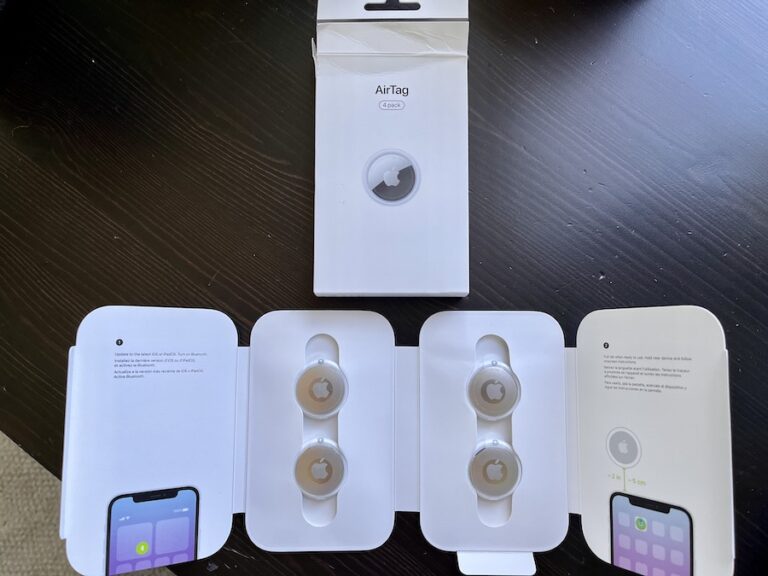
How to Use Apple AirTags For Tracking Luggage When Traveling
With growing concerns over lost luggage and delays at airports, we decided it was time to try Apple AirTags as a luggage locator or tracking device on our trips. In this Apple AirTag review for travel, we go over our personal experience with Apple AirTag luggage tracking on various flights. We also share important things…
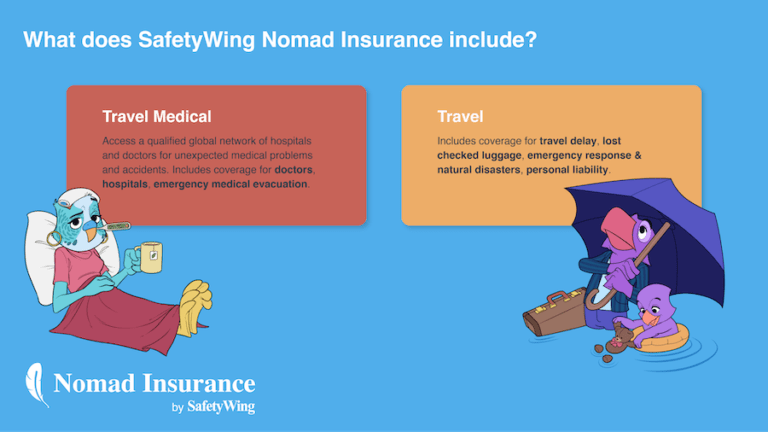
SafetyWing Nomad Insurance Review 2024 (with Covid Coverage)
As we returned to travel during the pandemic, Jedd and I felt that trip insurance and travel medical insurance were more important than ever for our trips. We first learned about SafetyWing at a digital nomad conference. With further research, specifically considering all the uncertainties around Covid-19 and travel restriction changes, we decided to use…

Italy travel requirements 2024: What travelers need to know
We aim to keep this post updated about Italy travel in 2024 with official Italy travel restrictions, requirements, and health and safety guidance. Our goal is to help you make informed decisions so you can travel confidently, safely, and responsibly in this new post-pandemic world of ours. Italy has a special place in our hearts,…
Leave a Reply Cancel reply
Your email address will not be published. Required fields are marked *
This site uses Akismet to reduce spam. Learn how your comment data is processed .
Update April 12, 2024
Information for u.s. citizens in the middle east.
- Travel Advisories |
- Contact Us |
- MyTravelGov |
Find U.S. Embassies & Consulates
Travel.state.gov, congressional liaison, special issuance agency, u.s. passports, international travel, intercountry adoption, international parental child abduction, records and authentications, popular links, travel advisories, mytravelgov, stay connected, legal resources, legal information, info for u.s. law enforcement, replace or certify documents.
Before You Go
Learn About Your Destination
While Abroad
Emergencies
Share this page:
Travel Advisory July 24, 2023
Thailand - level 1: exercise normal precautions.
Reissued with obsolete COVID-19 page links removed.
Exercise normal precautions in Thailand. Some areas have increased risk. Read the entire Travel Advisory.
Reconsider travel to:
- Yala, Pattani, Narathiwat, and Songkhla provinces due to civil unrest associated with ongoing insurgent activities.
Read the country information page for additional information on travel to Thailand.
If you decide to travel to Thailand:
- Enroll in the Smart Traveler Enrollment Program (STEP) to receive Alerts and make it easier to locate you in an emergency.
- Follow the Department of State on Facebook and Twitter .
- Review the Country Security Report for Thailand.
- Have evacuation plans that do not rely on U.S. government assistance.
- Visit the CDC page for the latest Travel Health Information related to your travel.
- Prepare a contingency plan for emergency situations. Review the Traveler’s Checklist .
Yala, Pattani, Narathiwat, and Songkhla Provinces – Level 3: Reconsider Travel
Periodic violence directed mostly at Thai government interests by a domestic insurgency continues to affect security in the southernmost provinces of Yala, Pattani, Narathiwat, and Songkhla. In Songkhla, the insurgency is most active in the districts of Chana, Thepha, Nathawat, and Saba Yoi. U.S. citizens are at risk of death or injury due to the possibility of indiscriminate attacks in public places.
The U.S. government has limited ability to provide emergency services to U.S. citizens in these provinces as U.S government employees must obtain special authorization to travel to these provinces.
Visit our website for Travel to High-Risk Areas .
Embassy Messages
View Alerts and Messages Archive
Quick Facts
6 months from date of entry required
One page is required per entry stamp; please note endorsement pages are not considered blank passport page
No, if your stay is less than 30 days
Yellow fever may be required if arriving from certain countries with yellow fever
Embassies and Consulates
U.S. Embassy Bangkok 95 Wireless Road Bangkok 10330 Thailand Telephone: + (66) (2) 205-4049, 02-205-4049 (within Thailand) Emergency After-Hours Telephone: +(66) (2) 205-4000, 02-205-4000 (within Thailand) Fax: +(66) (2) 205-4103, 02-205-4103 (within Thailand) Email: [email protected]
CONSULATE
U.S. Consulate General Chiang Mai 387 Witchayanond Road Chiang Mai 50300 Thailand Telephone: +(66) (53) 107-777, 053-107-777 (within Thailand) Emergency After-Hours Telephone: +(66) 81-881-1878, 081-881-1878 (within Thailand) Fax: +(66) (53) 252-633, 053-252-633 (within Thailand) Email: [email protected]
Destination Description
Learn about the U.S. relationship to countries around the world.
Entry, Exit and Visa Requirements
Visit the Royal Thai Embassy website for the most current visa information.
- U.S. citizen tourists entering Thailand for fewer than 30 days do not require a visa.
- We strongly recommend that your passport be valid for at least six months beyond the date of your arrival in Thailand to avoid possible denied entry.
- Thai immigration officials or airline staff may ask for your onward/return ticket.
- Business travelers, U.S. government employees travelling on official business, teachers, retirees, and those planning to stay longer than 30 days should check with the Royal Thai Embassy about visa requirements .
- If you overstay your visa, you will be fined. Depending on the length of overstay, you may also be arrested, detained, deported at your own expense, and banned from re-entering Thailand.
We strongly recommend you carry a copy of your U.S. passport identification page and current Thai visa to help avoid detention by the Thai immigration police.
Thailand’s entry/exit information is subject to change without notice. For the most current information, please see The Royal Thai Police Immigration Bureau .
You can find detailed information on vaccinations and other health precautions on the CDC website .
HIV/AIDS Restrictions: Some HIV/AIDS entry restrictions exist for visitors to and foreign residents of Thailand. However, these restrictions are generally not enforced. Please verify this information with the Royal Thai Embassy before you travel.
Find information on dual nationality , prevention of international child abduction and customs regulations on our websites.
COVID-19 Requirements: There are no COVID-related entry requirements for U.S. citizens.
Safety and Security
Terrorism: Terrorist groups and those inspired by such organizations are intent on attacking U.S. citizens abroad. Terrorists are increasingly using less sophisticated methods of attack – including knives, firearms, and vehicles – to more effectively target crowds. Frequently, their aim is unprotected or vulnerable targets, such as:
- High-profile public events (sporting contests, political rallies, demonstrations, holiday events, celebratory gatherings, etc.)
- Hotels, clubs, and restaurants frequented by tourists
- Places of worship
- Shopping malls and markets
- Public transportation systems (including subways, buses, trains, and scheduled commercial flights)
For more information, see our Terrorism page.
Periodic acts of violence in Thailand remain a concern. In August 2019, several small explosions and related arson events occurred in various locations throughout Bangkok resulting in no deaths but some injuries and minor property damage. Several small-scale bombings occurred near some tourist locations in the far Southern provinces in August 2016 and December 2018. In August 2015, an explosion near the Erawan Shrine in downtown Bangkok killed at least 20 people and injured more than 100. The U.S. Department of State assesses there is a continued risk of terrorism in Southeast Asia, including in Thailand.
If a protest or demonstration is expected to pass near the U.S. Embassy or Consulate facilities, Embassy and Consulate entrances and functions may be restricted. The U.S. Embassy in Bangkok’s website , Facebook, and Twitter sites and the U.S. Consulate General in Chiang Mai’s website , Facebook , and Twitter sites post information about local events that may affect Embassy functions. Enroll in the Smart Traveler Enrollment Program ( STEP ) to receive security and safety messages.
Far Southern Thailand: Periodic violence directed mostly at Thai government interests by a domestic insurgency continues to affect security in the southernmost provinces of Yala, Pattani, Narathiwat, and Songkhla. U.S. citizens are at risk of death or injury due to the possibility of indiscriminate attacks in public places. Martial law is in force in this region.
The U.S. government has limited ability to provide emergency services to U.S. citizens in these provinces. Travel to this region by U.S government employees must be reviewed and approved in advance. For more information on terrorist threats against U.S. citizens worldwide and steps to take as a result of these threats, please see the Worldwide Caution .
- Crimes of opportunity, such as pick-pocketing, bag-snatching, and burglary, occur in Thailand.
- Violent crimes against foreigners are relatively rare. However, murders, rapes, and assaults against foreigners do occur.
- Sexually motivated violence, committed by either Thai citizens or foreigners, is most likely to occur after time spent at bars, clubs, and parties, on beaches, or in remote/isolated areas. The Thai police response will differ from an investigation in the United States; investigating officials have publicly discredited people who have reported being the victim of crimes . In addition to making a report at the police jurisdiction in which the crime occurred, we advise contacting the Embassy and engaging a local attorney if you are a victim of an assault.
- When traveling alone, exercise caution, stay near other travelers, and ensure friends or family know how to contact you.
- Taxi and “tuk-tuk” drivers may attempt to charge excessive fares or refuse passengers. You should either request the driver use the meter or agree on the fare beforehand.
- At the airport use only public transportation from the airport’s official pick-up area, cars from the limousine counters, or a car from your hotel.
- Rental scams do occur in Thailand. Many rental motorbike, jet ski, and car companies will hold your passport until you pay for real or fictitious damages. We advise against using your passport as collateral.
- Exorbitant bar tab scams occur in Thailand. Some bars and entertainment venues will charge exorbitant prices for drinks or unadvertised cover charges and threaten violence if you don’t pay.
- Other scams involving gems, city tours, entertainment venues, and credit cards are common, especially in tourist areas.
International Financial Scams: See the Department of State and the FBI pages for information.
Internet romance and financial scams are prevalent in Thailand. Scams are often initiated through Internet postings/profiles or by unsolicited emails and letters. Scammers almost always pose as U.S. citizens who have no one else to turn to for help. Common scams include:
- Romance/Online dating
- Money transfers
- Grandparent/Relative targeting
- Free Trip/Luggage
- Work permits/job offers
Victims of Crime: U.S. citizen victims of crime are encouraged to contact the U.S. Embassy or Consulate for assistance. Report crimes to the local police by calling 191 or the Tourist Police at 1155 and contact the U.S. Embassy at +66 (0) 2-205-4049 or Consulate at +(66) (53) 107-777. Remember that only local officials have the authority to investigate and to prosecute a crime.
Domestic Violence: U.S. citizen victims of domestic violence are encouraged to contact the U.S. Embassy or Consulate for assistance. Report crimes to the local police by calling 191 or the Tourist Police at 1155 and contact the U.S. Embassy at +66 (0) 2-205-4049 or Consulate at +(66) (53) 107-777. Remember that only local officials have the authority to investigate and to prosecute a crime.
See our webpage on help for U.S. victims of crime overseas .
- Help you find appropriate medical care
- Assist you in reporting a crime to the police
- Contact relatives or friends with your written consent
- Explain the local criminal justice process in general terms
- Provide a list of local attorneys
- Provide our information on victim’s compensation programs in the U.S.
- Provide an emergency loan for repatriation to the United States and/or limited medical support in cases of destitution
- Help you find accommodation and arrange flights home
- Replace a stolen or lost passport
Tourism: The tourism industry is unevenly regulated, and safety inspections for equipment and facilities do not commonly occur. Hazardous areas/activities are not always identified with appropriate signage, and staff may not be trained or certified either by the host government or by recognized authorities in the field. In the event of an injury, appropriate medical treatment is typically available only in/near major cities. First responders are generally unable to access areas outside of major cities and to provide urgent medical treatment. U.S. citizens are encouraged to purchase medical evacuation insurance. See our webpage for more information on insurance providers for overseas coverage .
Local Laws & Special Circumstances
Criminal Penalties: You are subject to local laws. If you violate local laws, even unknowingly, you may be expelled, arrested, or imprisoned. Individuals establishing a business or practicing a profession that requires additional permits or licensing should seek information from the competent local authorities, prior to practicing or operating a business.
Furthermore, some laws are also prosecutable in the United States, regardless of local law. For examples, see our website on crimes against minors abroad and the Department of Justice website.
Arrest Notification: If you are arrested or detained, ask police or prison officials to notify the U.S. Embassy immediately. See our webpage for further information.
Conditions at the Bangkok Immigration Detention Center (IDC): Conditions in immigration detention centers (IDCs) where authorities detain foreign nationals who violate immigration laws remain poor and most are overcrowded. IDCs, administered by the Immigration Police Bureau, which reports to the Royal Thai Police (RTP), are not subject to many of the regulations that govern the regular prison system. U.S. citizen detainees often complain of stark, austere living conditions, overcrowding, and unhealthy conditions. Personal security is poor. In addition, the main IDC in Bangkok does not dependably provide adequate medical or mental health care. In 2019, two U.S. citizens died while in custody at the Bangkok IDC. Deportations are self-funded and it may take up to two weeks for Thai authorities to process a case before deportation. Detainees must have funds to purchase a phone card and do not have access to the internet. Prior approval and a security escort are required to visit a Western Union or an ATM machine.
- Please see the Immigration Act B.E. 1979 for more information about Thai Immigration violations.
- Please see the Department of State’s Report on Human Rights Practices for Thailand for further information.
Lèse majesté (Royal Insult): Thais hold the monarchy in the highest regard. Making a critical or defamatory comment about the royal family is punishable by a prison sentence of up to 15 years per offense. As an example, purposely tearing Thai bank notes, which carry an image of the King, may be considered a lèse majesté offense.
- Prostitution is illegal in Thailand. Serious consequences include criminal conviction and imprisonment, particularly in the case of child prostitution.
- Commercial surrogacy is banned.
- Personal use of even non-lethal military equipment, such as protective vests and night vision scopes, is prohibited.
- Illegal drugs carry severe penalties. Expect long jail sentences under harsh conditions, heavy fines, or even execution for possessing, using, or trafficking in illegal drugs.
- Shoplifting can result in large fines and lengthy detention followed by deportation.
- Domestic Issues: Local police are reluctant to become involved in domestic issues. You may call the Family Services Emergency hotline by dialing 1300 from any Thai phone.
- Possessing counterfeit or pirated goods is a crime in Thailand. For more information see the intellectual property section of the U.S. Department of Justice website .
Customs may enforce strict regulations on Buddha images, firearms, bullets and/or bullet casings, bullet-proof vests, night vision devices and other para-military type equipment, explosives, drugs, radios, books, and recordings, which might be cultural property and/or considered harmful to the public interest.
Faith-Based Travelers: See the following webpages for details:
- Faith-Based Travel Information
- International Religious Freedom Report – see country reports
- Human Rights Report – see country reports
- Hajj Fact Sheet for Travelers
- Best Practices for Volunteering Abroad
LGBTI Travelers: There are no known legal restrictions on same-sex sexual relations or the organization of LGBTI events in Thailand. However, LGBTI groups report that in the case of sexual crimes, police tend to downplay sexual abuse claims from LGBTI victims.
See our LGBTI Travel Information page and section 6 of our Human Rights report for further details.
Travelers Who Require Accessibility Assistance. Sidewalks and street crossings are not suitable for travelers with mobility issues. Newly constructed buildings, facilities, and transportation equipment should be accessible by law for persons with mobility issues. However, enforcement of these provisions is not uniform.
Students: See our Students Abroad page and FBI travel tips .
Women Travelers: Some victims of sexual assault or domestic violence find that Thai authorities do not handle such cases with as much sensitivity or consideration for privacy as they would expect in the United States. See our travel tips for Women Travelers .
Ambulance services are:
- not present throughout the country or are unreliable in most areas except for Bangkok and other major cities.
- Injured or seriously ill travelers may prefer to take a taxi or private vehicle to the nearest major hospital rather than wait for an ambulance.
Medical treatment is generally adequate in Thailand’s urban areas. In Bangkok, Chiang Mai, Phuket, and Pattaya, good facilities exist for routine, long-term, and emergency health care. Basic medical care is available in rural areas, but English-speaking providers are rare.
Medical tourism is an established and rapidly growing industry. You should consult with your local physician before traveling and also refer to information on medical tourism from CDC.
We do not pay medical bills. Be aware that U.S. Medicare/Medicaid does not apply overseas. Most hospitals and doctors overseas do not accept U.S. health insurance.
Medical Insurance: Make sure your health insurance plan provides coverage overseas. Most care providers overseas only accept cash payments. See our webpage for more information on insurance providers for overseas coverage. Visit the U.S. Centers for Disease Control and Prevention for more information on type of insurance you should consider before you travel overseas.
We strongly recommend supplemental insurance to cover medical evacuation.
Medicine for personal use is allowed as long as the amount does not exceed a 30-day supply and you bring the medicine with you. Do not mail medicine to Thailand without first confirming it will be allowed into the country.
If traveling with prescription medication, check with Thailand Customs and the Thailand Food and Drug Administration to ensure the medication is legal in Thailand. Always, carry your prescription medication in original packaging with your doctor’s prescription.
The following diseases are present:
- Chikungunya
- Japanese encephalitis
- Tuberculosis:
- Hepatitis A and B
- Melioidosis
Vaccinations: Be up-to-date on all vaccinations recommended by the U.S. Centers for Disease Control and Prevention.
Further health information:
- World Health Organization
- U.S. Centers for Disease Control and Prevention (CDC)
Air Quality: The air quality in Thailand varies considerably and fluctuates with the seasons, but seasonal smog is a problem. In recent years the air quality in Bangkok, Chiang Mai, Khon Kaen, Lampang, Nan, and Samut Sakhon have exceeded Thai and U.S. government daily standards for fine particulate matter (PM 2.5) for a portion of the year. In Chiang Mai and other northern provinces, annual agricultural burning, approximately February through late April, and forest fires cause days with unhealthy to hazardous air quality based on the U.S. index. In Bangkok environs, airborne dust and auto pollutants are prevalent in the cooler, dry period (December-February). Anyone who travels where pollution levels are high is at risk. People at the greatest risk from air pollution exposure include:
- Infants, children, and teens
- People over 65 years of age
- People with lung disease such as asthma and chronic obstructive pulmonary disease (COPD), which includes chronic bronchitis and emphysema;
- People with heart disease
- People who work or are active outdoors
For Bangkok and Chiang Mai, U.S. Mission Thailand is reporting the U.S. EPA’s Air Quality Index (AQI) calculated from PM2.5 data captured by monitors owned and maintained by the Royal Thai Government. The information and advice on health protection measures to take is available
Visit AirNow Department of State for information on air quality at U.S. Embassies and Consulates.
The U.S. Embassy maintains a list of doctors and hospitals . We do not endorse or recommend any specific medical provider or clinic.
Health facilities in general:
- Adequate health facilities are available in Bangkok and other major cities but health care in rural areas may be below U.S. standards.
- Hospitals and doctors require payment “up front” prior to service or admission. Credit card payment is not always available.
- Medical staff at public hospitals may speak little or no English.
- Patients bear all costs for transfer to or between hospitals.
- Psychological and psychiatric services are limited, even in the larger cities, with hospital-based care only available through government institutions.
Medical Tourism and Elective Surgery:
- Medical tourism is a rapidly growing industry. People seeking health care overseas should understand that medical systems operate differently from those in the United States and are not subject to the same rules and regulations. Anyone interested in traveling for medical purposes should consult with their local physician before traveling and visit the U.S. Centers for Disease Control and Prevention website for more information on Medical Tourism.
- We strongly recommend supplemental insurance to cover medical evacuation in the event of unforeseen medical complications.
- Your legal options in case of malpractice are very limited in Thailand.
- Although Thailand has many elective/cosmetic surgery facilities that are on par with those found in the United States, the quality of care varies widely. If you plan to undergo surgery in Thailand, make sure that emergency medical facilities are available and professionals are accredited and qualified.
Pharmaceuticals:
- Exercise caution when purchasing medication overseas. Pharmaceuticals, both over the counter and requiring prescription in the United States, are often readily available for purchase with little controls. Counterfeit medication is common and may prove to be ineffective, the wrong strength, or contain dangerous ingredients. Medication should be purchased in consultation with a medical professional and from reputable establishments.
- U.S. Customs and Border Protection and the Food and Drug Administration are responsible for rules governing the transport of medication back to the United States. Medication purchased abroad must meet their requirements to be legally brought back into the United States. Medication should be for personal use and must be approved for usage in the United States. Please visit the U.S. Customs and Border Protection and the Food and Drug Administration websites for more information.
Assisted Reproductive Technology and Surrogacy:
- If you are considering traveling to Thailand to have a child through use of assisted reproductive technology (ART) or surrogacy, please see our ART and Surrogacy Abroad page .
- Surrogacy is illegal for foreigners in Thailand, subject to complex local regulation. For additional information, visit the Government of Thailand’s website for information on foreigner surrogacy.
- If you decide to pursue parenthood in Thailand via assisted reproductive technology (ART) with a gestational mother, be prepared for long and unexpected delays in documenting your child’s citizenship. Be aware that individuals who attempt to circumvent local law risk criminal prosecution.
Water Quality:
- In many areas, tap water is not potable. Bottled water and beverages are generally safe, although you should be aware that many restaurants and hotels serve tap water unless bottled water is specifically requested. Be aware that ice for drinks may be made using tap water.
Adventure Travel:
- Visit the U.S. Centers for Disease Control and Prevention website for more information about Adventure Travel .
COVID-19 Testing: For the most current list of COVID-19 testing locations in Thailand approved by the Ministry of Public Health, please visit: http://service.dmsc.moph.go.th/labscovid19 . Testing is paid for by U.S. citizens.
The Ministry of Public Health provides a list of 44 laboratories approved to conduct COVID-19 testing found here .
Please Note : Same-day Covid-19 testing is available at most private hospitals throughout Thailand. Please reference this list of testing locations and contact the provider directly to inquire about COVID-19 testing options, scheduling, cost, and other information.
COVID-19 Vaccines: The COVID-19 vaccine is available for U.S. citizens to receive in Thailand. According to Thai authorities, both private and public hospitals are providing COVID-19 vaccines. More information on a list of hospitals in Thailand is available here .
The Bang Rak Vaccination and Health Center, the Institute of Dermatology, and the Bamrasnaradura Infectious Diseases Institute are currently providing free bivalent vaccines to non-Thai citizens on a walk-in basis.
Visit the FDA's website to learn more about FDA-approved vaccines in the United States.
Travel and Transportation
Road Conditions and Safety:
- Traffic accidents are common in Thailand. According to the World Health Organization , in 2018, Thailand had one of the world’s highest traffic-related fatality rates. Bangkok and some parts of Chiang Mai have heavy traffic.
- Reckless driving: Speeding, reckless passing, and failure to obey other traffic laws are common in all regions of Thailand. Traffic moves on the left. Some drivers move illegally against the traffic. Scooters and motorbikes commonly drive on the sidewalks during rush hour and other periods of heavy traffic. Commercial drivers commonly consume alcohol, amphetamines, and other stimulants.
- Accidents involving motorcycles can be deadly . Riders may incur serious injuries when they are not wearing helmets or proper clothing and footwear. According to the World Health Organization, in 2016, 74 percent of traffic fatalities involved riders of 2-and 3-wheeled vehicles. Use of motorcycle helmets is mandatory, but this law is sporadically enforced.
- Use a pedestrian bridge to cross the road where one is available, including in front of the U.S. Embassy on Wireless Road and on Sukhumvit Road, where many pedestrians have been killed and several U.S. citizens seriously injured. Look carefully in both directions before crossing streets, even when using a marked crosswalk.
- If you have a traffic accident, you should contact your insurance company for guidance in dealing with the other party and the police.
- Emergency vehicles: Congested roads and a scarcity of ambulances can make it difficult for accident victims to receive timely medical attention
Traffic Laws:
- Driving under influence is punishable by law . If you are found to be intoxicated, you could be jailed for a minimum of two years and subject to a fine.
- Bribes are illegal. If you are found guilty, you could be imprisoned up to five years, face severe fines, or both.
- Lack of ID.
- Not obeying traffic laws and traffic signals.
- Driving slowly in regular lanes of traffic.
- If you are involved in a traffic accident, you should contact your auto insurance company for guidance .
Public Transportation:
- Mass transit: In Bangkok, the BTS elevated "Skytrain," “Airport Rail Link” mass transit, and the underground MRT systems are reliable, inexpensive, air conditioned, and often faster than Bangkok traffic.
- Bus system: Bangkok also has an extensive bus system, but buses can be overcrowded and are often driven with little or no regard for passenger safety.
- For hire vehicles: Cities outside of Bangkok typically have only rudimentary public transportation and usually do not have metered taxis. In many cases, motorcycle taxis, tuk-tuks, bicycle-powered rickshaws, and pick-up trucks will be the only options available for travelers without their own transport.
- Smartphone-based for-hire vehicle service exist in Bangkok and other large cities. Those affiliated with registered taxis, such as Grab Taxi, Line Taxi, and All Thai Taxi are legal, but their affiliated car services are under legal review.
See our Road Safety page for more information.
Aviation Safety Oversight: The U.S. Federal Aviation Administration (FAA) has assessed the government of Thailand’s Civil Aviation Authority as not being in compliance with International Civil Aviation Organization (ICAO) aviation safety standards for oversight of Thailand’s air carrier operations. Further information may be found on the FAA’s safety assessment page .
Maritime Travel: Mariners planning travel to Thailand should also check for U.S. maritime advisories and alerts . Information may also be posted to the U.S. Coast Guard homeport website , and the NGA broadcast warnings .
For additional travel information
- Enroll in the Smart Traveler Enrollment Program (STEP) to receive security messages and make it easier to locate you in an emergency.
- Call us in Washington, D.C. at 1-888-407-4747 (toll-free in the United States and Canada) or 1-202-501-4444 (from all other countries) from 8:00 a.m. to 8:00 p.m., Eastern Standard Time, Monday through Friday (except U.S. federal holidays).
- See the State Department’s travel website for the Worldwide Caution and Travel Advisories .
- Follow us on Twitter and Facebook .
- See traveling safely abroad for useful travel tips.
Review information about International Parental Child Abduction in Thailand . For additional IPCA-related information, please see the International Child Abduction Prevention and Return Act ( ICAPRA ) report.
Travel Advisory Levels
Assistance for u.s. citizens, thailand map, learn about your destination, enroll in step.

Subscribe to get up-to-date safety and security information and help us reach you in an emergency abroad.
Recommended Web Browsers: Microsoft Edge or Google Chrome.
Make two copies of all of your travel documents in case of emergency, and leave one with a trusted friend or relative.
Afghanistan
Antigua and Barbuda
Bonaire, Sint Eustatius, and Saba
Bosnia and Herzegovina
British Virgin Islands
Burkina Faso
Burma (Myanmar)
Cayman Islands
Central African Republic
Cote d Ivoire
Curaçao
Czech Republic
Democratic Republic of the Congo
Dominican Republic
El Salvador
Equatorial Guinea
Eswatini (Swaziland)
Falkland Islands
France (includes Monaco)
French Guiana
French Polynesia
French West Indies
Guadeloupe, Martinique, Saint Martin, and Saint Barthélemy (French West Indies)
Guinea-Bissau
Isle of Man
Israel, The West Bank and Gaza
Liechtenstein
Marshall Islands
Netherlands
New Caledonia
New Zealand
North Korea (Democratic People's Republic of Korea)
Papua New Guinea
Philippines
Republic of North Macedonia
Republic of the Congo
Saint Kitts and Nevis
Saint Lucia
Saint Vincent and the Grenadines
Sao Tome and Principe
Saudi Arabia
Sierra Leone
Sint Maarten
Solomon Islands
South Africa
South Korea
South Sudan
Switzerland
The Bahamas
Timor-Leste
Trinidad and Tobago
Turkmenistan
Turks and Caicos Islands
United Arab Emirates
United Kingdom
Vatican City (Holy See)
External Link
You are about to leave travel.state.gov for an external website that is not maintained by the U.S. Department of State.
Links to external websites are provided as a convenience and should not be construed as an endorsement by the U.S. Department of State of the views or products contained therein. If you wish to remain on travel.state.gov, click the "cancel" message.
You are about to visit:
Tourism Authority of Thailand
Tat newsroom is committed to supporting international media by providing the latest press releases, festivals & events, other thai travel news as well as compelling thailand travel features and videos., press releases.

TAT and UnionPay International Sign Letter of Intent
The Tourism Authority of Thailand (TAT) and UnionPay International (UPI), a global leading card scheme, have signed a Letter of Intent (LOI) to enhance cooperation in the promotion of Thailand’s quality tourism experiences for Chinese visitors and UnionPay cardholders.

The Tourism Authority of Thailand (TAT) and UnionPay International (UPI), a global…
CF-Hotels Initiative Reiterates TAT’s Push Towards Sustainable Tourism

Bangkok, 25 April 2024 – The Tourism Authority of Thailand (TAT) invites…
Tourism Authority of Thailand soft opens new office in Chicago

The Tourism Authority of Thailand (TAT) has soft-opened its newest overseas office…
TAT and Klook sign Letter of Intent of Strategic Partnership

The Tourism Authority of Thailand (TAT) and Klook, Asia’s leading platform for…
Maha Songkran World Water Festival 2024 Unveiled with Epic Spectacle

The “Maha Songkran World Water Festival 2024” opened today with an epic…
‘ASEAN + India Shoppers in Thailand’ activity to boost Thai economy with soft power

The Tourism Authority of Thailand (TAT) and partners announced the 'ASEAN +…

Events & Festivals

Awards & Accolades
3 bangkok restaurants in the top 10 on asia’s 50 best restaurants 2024, chiang khan – first asean destination to win prestigious green destinations award, three more thai cities join unesco global network of learning cities, thailand featured in 2024 tripadvisor travelers’ choice awards, thailand named ‘popular destination’ by national geographic traveler china, the salil hotel riverside bangkok wins six awards in 2023, thailand named ‘best affordable long-haul destination’, chiang rai and suphan buri join unesco creative cities’ list, thailand’s culinary excellence shines at world culinary awards 2023, four thai towns listed in the 2023 green destinations top 100 stories, thailand travel documentaries.
Ramwong Rerng Songkran song (English version)
Thailand tourism festival 2024, advertising film: meaningful relationship, ‘the journey to sustainability’, ‘gingala lanna bird dance’ of thailand, ‘khon’ - the beautiful and mesmerising masked dance drama of thailand, thailand organic tourism ep 5: phatthalung, 11th apec tourism ministerial meeting in bangkok, thailand organic tourism ep 4: khon kaen and udon thani, thailand organic tourism ep3: chiang mai, tvc: write your new chapter, thailand organic tourism ep 2: samut songkhram, thailand organic tourism ep1: bangkok, surfing in phuket, even more amazing, thailand trusted report ep 26: kaeng krachan forest complex, travel industry news.

AOT Kicks off Pushing Thailand to Top of Aviation Hub

Bookings open for Bangkok-Ayutthaya steam train ride to mark birth of Thai railway

We’re sorry, this site is currently experiencing technical difficulties. Please try again in a few moments. Exception: request blocked
Cookies on GOV.UK
We use some essential cookies to make this website work.
We’d like to set additional cookies to understand how you use GOV.UK, remember your settings and improve government services.
We also use cookies set by other sites to help us deliver content from their services.
You have accepted additional cookies. You can change your cookie settings at any time.
You have rejected additional cookies. You can change your cookie settings at any time.
- Passports, travel and living abroad
- Travel abroad
- Foreign travel advice
Warnings and insurance
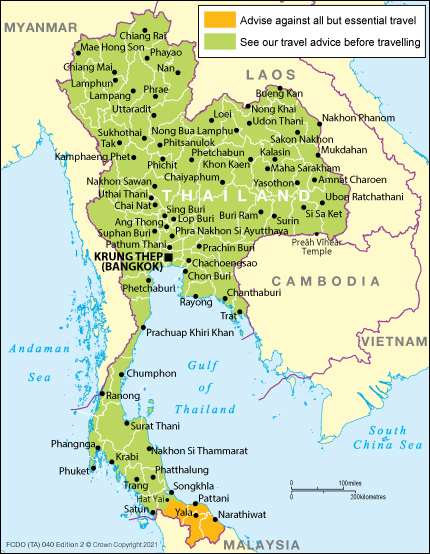
The Foreign, Commonwealth & Development Office ( FCDO ) provides advice about risks of travel to help British nationals make informed decisions. Find out more about FCDO travel advice .
Areas where FCDO advises against travel
Your travel insurance could be invalidated if you travel against FCDO advice. Consular support is also severely limited where FCDO advises against travel.
Pattani province
FCDO advises against all but essential travel to Pattani province.
Yala province
FCDO advises against all but essential travel to Yala province.
Narathiwat province
FCDO advises against all but essential travel to Narathiwat province.
Southern Songkhla province
FCDO advises against all but essential travel to Southern Songkhla province, except for:
- the areas north of and including the A43 road between Hat Yai and Sakom
- the areas north-west of the train line which runs between Hat Yai and Padang Besar
Hat Yai to Padang Besar train line
FCDO advises against all but essential travel on the Hat Yai to Padang Besar train line.
Find out more about why FCDO advises against travel .
Before you travel
No travel can be guaranteed safe. Read all the advice in this guide as well as support for British nationals abroad which includes:
- advice on preparing for travel abroad and reducing risks
- information for women, LGBT+ and disabled travellers
Follow and contact FCDO travel on Twitter , Facebook and Instagram . You can also sign up to get email notifications when this advice is updated.
Travel insurance
If you choose to travel, research your destinations and get appropriate travel insurance . Insurance should cover your itinerary, planned activities and expenses in an emergency.
Related content
Is this page useful.
- Yes this page is useful
- No this page is not useful
Help us improve GOV.UK
Don’t include personal or financial information like your National Insurance number or credit card details.
To help us improve GOV.UK, we’d like to know more about your visit today. We’ll send you a link to a feedback form. It will take only 2 minutes to fill in. Don’t worry we won’t send you spam or share your email address with anyone.

Search Smartraveller

Latest update
Exercise a high degree of caution in Thailand overall due to security and safety risks.
Higher levels apply in some areas.
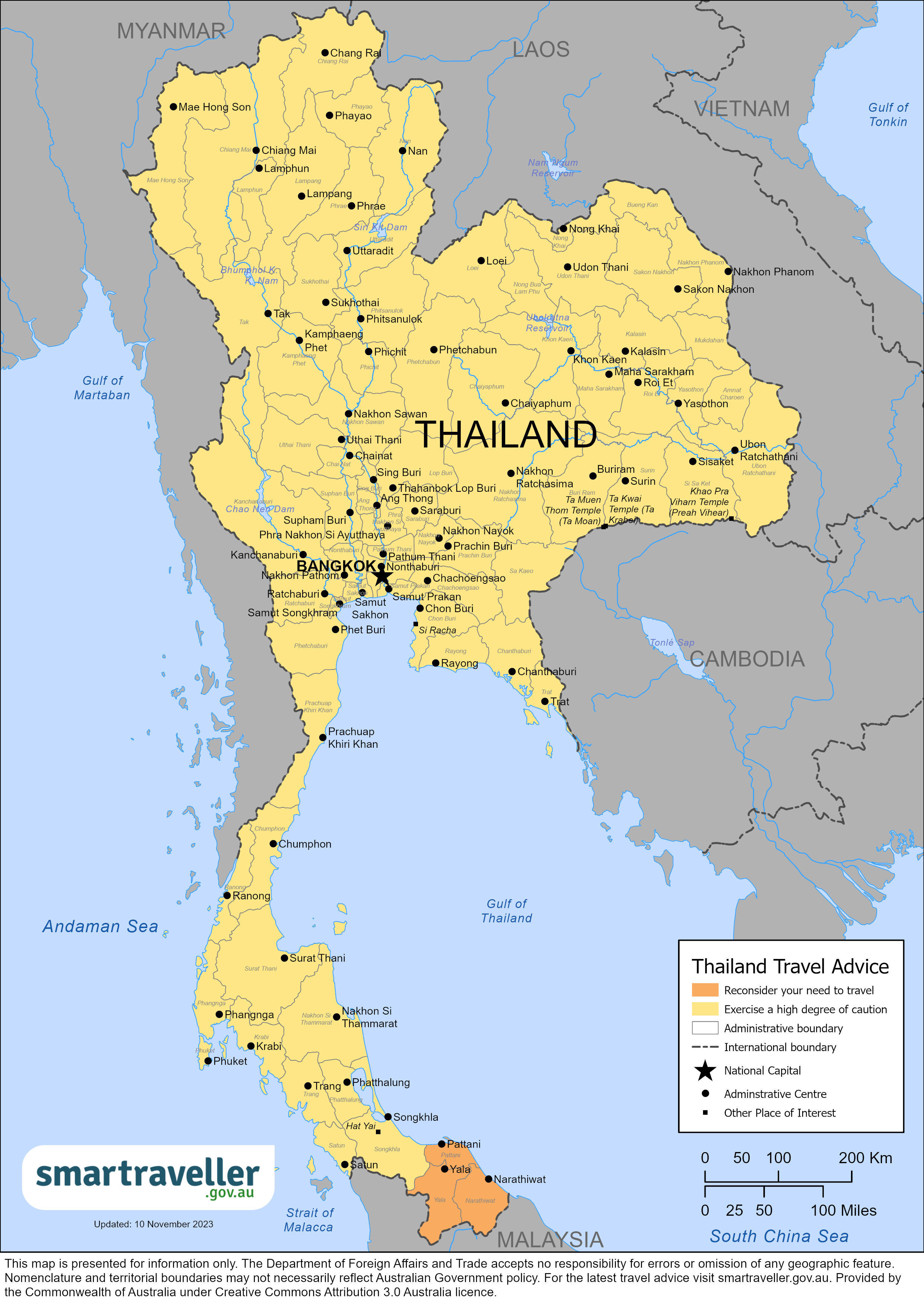
Thailand (PDF 998.61 KB)
Asia (PDF 2.21 MB)
Local emergency contacts
Fire and rescue services, medical emergencies.
Call 1669 for medical emergencies and rescue services.
Call 1724 for an ambulance in Bangkok. 1669 Nationwide.
Call 191 for police.
Call 1155 for the tourist police.
Advice levels
Exercise a high degree of caution in Thailand overall due to security and safety risks.
Reconsider your need to travel to Yala, Pattani and Narathiwat provinces.
Reconsider your need to travel to:
- Yala province,
- Pattani province, and
- Narathiwat province
due to ongoing risks of low-level insurgent activity, including terrorism.
See Safety .
- Road accidents are a significant cause of injury. Be alert at all times on the roads.
- Floods and severe weather can disrupt essential services during the wet season (June to November). Follow the advice of local officials.
- Scams, credit card fraud and ATM fraud are common.
- Sexual assault, assault, robbery and drink spiking can happen to tourists. Never leave your drink unattended. Stay with people you trust at parties, in bars, nightclubs and taxis.
- Anti-government protests have previously occurred in Bangkok and other areas of Thailand. The security environment can be unpredictable and turn violent. Those attending protests can face arrest or other legal consequences. Monitor local media for information on protest locations and avoid public gatherings. Take official warnings seriously and follow the advice of local authorities.
- There's an ongoing risk of terrorist attack in Thailand. Popular tourist areas may be the target of terrorist attacks. Thai authorities have warned of possible bombings on symbolic dates or holidays. Be alert to possible threats. Take official warnings seriously and follow the advice of local authorities.
- Reconsider your need to travel to the 3 most southern provinces of the Thailand-Malaysia border: Yala, Pattani and Narathiwat. Low-level insurgent activity continues to occur in these areas.
- Border areas near Cambodia, Myanmar and Malaysia are dangerous due to violence, armed conflict and landmines. Pay close attention to your personal security.
Full travel advice: Safety
- Travellers have been arrested for carrying medicine they bought at a Thai pharmacy without a prescription. Get medical advice before buying medicine.
- Insect-borne diseases include malaria, Zika virus, dengue, chikungunya, Japanese encephalitis and filariasis. Use insect repellent. Ensure your accommodation is insect-proof as possible.
- Animals in parts of Thailand can carry rabies. Don't ever feed, pat or tease monkeys. If you're bitten or scratched by a dog, monkey or other animal, get treatment immediately.
- Thailand has high levels of air pollution. Air pollution can make bronchial, sinus or asthma conditions worse. Check air quality levels on the World Air Quality Index .
- Medical tourism is common. Avoid discount and uncertified medical establishments. Their standards can be poor. Research medical service providers and choose with care.
Full travel advice: Health
- Penalties for drug offences are severe. They include the death penalty.
- Commercial surrogacy is illegal. E-cigarettes, e-baraku, vaporisers and refills are illegal. Smoking on some beaches is illegal. Travel without carrying identification is illegal.
- Penalties for breaking the law can apply to anyone aged under 18 years. Penalties for children can include detention in a juvenile or adult prison.
- Thailand has the death penalty for serious crimes, including murder, attempted murder and rape. Crimes against the state and offences against the monarchy can also attract the death penalty. Take care not to cause offence about the monarchy, including on social media.
Full travel advice: Local laws
You can get a visa exemption for up to 30 days on arrival (restricted to 2 entries per calendar year). The visa exemption is strictly for tourism purposes only. If your travel is not for tourism purposes, contact the nearest Royal Thai Embassy or Consulate-General to apply for the appropriate visa.
- You may be subject to biometric screening at points of entry, and restrictions may change at short notice. Check with your airline, the International Air Transport Association (IATA) or the nearest Thai Embassy for the latest information.
- You can transit between international flights in Bangkok's Suvarnabhumi Airport . Ensure that your connecting flight is booked on the same itinerary and ticket. You must remain in the transiting area in the airport.
Full travel advice: Travel
Local contacts
- The Consular Services Charter tells you what the Australian Government can and can't do to help when you're overseas.
- For consular help, contact the Australian Embassy, Bangkok , or the Australian Consulate-General, Phuket .
- To stay up to date with local information, follow the Embassy's social media accounts.
Full travel advice: Local contacts
Full advice
Civil unrest and political tension, security situation .
The security situation can be unpredictable in Thailand. Large protests have occurred in Bangkok and other areas. In previous years, large political protests and government crowd control operations have resulted in violence.
More incidents are possible.
To stay safe during periods of unrest:
- avoid demonstrations, processions and public gatherings
- follow media and other sources
- take official warnings seriously
- follow the advice of local authorities
- If you see a suspicious package, stay clear and report it to Police
More information:
- Demonstrations and civil unrest
Thailand-Cambodia border
Thailand and Cambodia have an ongoing border dispute. There's a risk of landmines and unexploded weapons near the Thai-Cambodian border area.
Be extra careful at tourist areas, including:
- the Preah Vihear temple - Khao Pra Viharn in Thailand
- the Ta Kwai temple - Ta Krabei in Cambodia
- the Ta Muen Thom temple - Ta Moan in Cambodia
Tourist attractions and border crossings in this area may close with little or no notice.
Thailand-Myanmar border
Fighting and armed theft can occur along the Thai-Myanmar border. This includes:
- fighting between the Burmese military and armed ethnic opposition groups
- clashes between Thai security forces and armed criminal groups, such as drug traffickers
Armed clashes between the military and opposition groups inside Myanmar may lead to border closures.
If you try to cross the border illegally, you may be detained and deported.
Bandits may target you if you travel through national parks in this border region.
If you travel to this region:
- monitor the news
- watch out for other signs of unrest
- pay close attention to your personal security
Thailand-Malaysia border
Reconsider your need to travel to or from the three most southern provinces:
Violence includes attacks and bombings, with deaths and injuries. Since 2004, over 6500 people have been killed and many more injured in these provinces.
Bombings are often coordinated to target people who respond to the first explosion.
Over the past few years, multiple coordinated explosions have occurred in the southern border provinces, and low-level insurgent activity continues.
If you travel to or stay in these provinces, you could get caught up in violence directed at others.
Attacks can happen at any time.
Terrorism is a threat worldwide.
Attacks, including bombings and shootings, are possible anytime. They can happen anywhere, including Bangkok and Phuket.
Popular tourist areas may be the target of terrorist attacks.
Thai authorities have warned of possible bombings on symbolic dates or holidays.
Possible targets for future attacks include:
- shopping malls, markets and banks
- hotels and beach resorts
- restaurants, bars and nightclubs
- schools and places of worship
- outdoor recreation events
Other targets include public buildings, public transport, airports and sea ports.
To reduce your risk of being involved in a terrorist attack:
- have a clear exit plan in case there's a security incident
- be alert to possible threats
- report suspicious activity or items to police
- monitor the media for threats
If there is an attack, leave the area as soon as it's safe. Avoid the affected area in case of secondary attacks.
Gun-related violence can occur at any time.
On 3 October 2023, 3 people were killed and 4 injured in a shooting at the Siam Paragon mall in Bangkok.
On 6 October 2022, 36 people were killed in a shooting and stabbing incident in Nong Bua Lamphu province.
Sexual assault and violent crime
Travellers may experience sexual assault , other assault and robbery .
Be extra careful in tourist spots such as Khao San Road in Bangkok and the night-time entertainment zones in Bangkok, Pattaya and Phuket.
Be aware of drink-spiking. Don't drink homemade or local cocktails. They can contain narcotics or poison. You're at higher risk of sexual assault and theft if you get drugged.
Never leave your drink unattended.
Stay with people you trust at parties, in bars, nightclubs and taxis.
Get urgent medical attention if you think you or someone else has been drugged.
If you're a victim of violent crime, including rape, get immediate medical attention.
Under Thai law, courts will only accept the results of a medical examination from some government hospitals. After you've been examined by a government hospital, you can receive medical attention at a private hospital. Please contact the Australian Embassy Bangkok, Consulate-General Phuket, or Consular Emergency Centre in Canberra for assistance.
- Partying safely
Petty crime
Money and passports have been stolen from budget hotel and hostel rooms, and from bags on public transport. Thieves also target luggage stored on trains and below buses.
Bags have been snatched by thieves on motorcycles or sliced open with razor blades.
To reduce your risk of theft:
- don't leave valuables in luggage stowed under buses or away from you on trains
- be wary of motorcycles approaching from behind as you walk on the footpath
- hold bags and backpacks in front of you
Cyber security
You may be at risk of cyber-based threats during overseas travel to any country. Digital identity theft is a growing concern. Your devices and personal data can be compromised, especially if you're connecting to Wi-Fi, using or connecting to shared or public computers, or to Bluetooth.
Social media can also be risky in destinations where there are social or political tensions or laws that may seem unreasonable by Australian standards. Travellers have been arrested for things they have said on social media. Don't comment on local or political events on your social media.
More information:
- Cyber security when travelling overseas

Kidnapping
Kidnapping can happen anywhere, anytime, including in destinations that are typically at lower risk.
The Australian Government's longstanding policy is that it doesn't make payments or concessions to kidnappers.
- Kidnapping
Tours and adventure activities
Transport and tour operators don't always follow safety and maintenance standards. This includes for:
- scuba diving
- elephant safaris
- bungee jumping
If you plan to do an adventure activity :
- check if your travel insurance policy covers it
- ask about and insist on minimum safety requirements
- always use available safety gear, such as life jackets or seatbelts
If proper safety equipment isn't available, use another provider.
Climate and natural disasters
Thailand experiences natural disasters and severe weather , including:
- earthquakes
Severe weather events are likely to disrupt transport, electricity and communications.
To stay safe during severe weather:
- check media and weather reports
- check in with your tour operator
- don't enter areas affected by flooding or landslides
If there is a natural disaster:
- secure your passport in a safe, waterproof place
- keep in contact with friends and family
- monitor the media and other local sources of information
- Register with the Global Disaster Alert and Coordination System to receive alerts on major disasters.
Storms and floods
Severe storms and widespread seasonal flooding can occur without warning. This includes flash floods.
The wet season in north and central Thailand is from May to October.
In Koh Samui and the south-east of the peninsula, the wet season is from November to March.
- Thai Meteorological Department
- Mekong River Commission — flood levels for the Mekong River
Earthquakes and tsunamis
Earthquakes occur in Thailand.
Tsunamis are more likely in Thailand because of the risk of earthquakes.
Check with the US Tsunami Warning Centre for updates on seismic activity and tsunamis.
If you're near the coast, move to high ground straight away if advised, or if you:
- feel a strong earthquake that makes it hard to stand up
- feel a weak, rolling earthquake that lasts a minute or more
- see a sudden rise or fall in sea level
- hear loud and unusual noises from the sea
Don't wait for official warnings such as alarms or sirens. Once on high ground, monitor local media.
Travel insurance
Get comprehensive travel insurance before you leave.
Your policy needs to cover all overseas medical costs, including medical evacuation. The Australian Government won't pay for these costs.
If you can't afford travel insurance, you can't afford to travel. This applies to everyone, no matter how healthy and fit you are.
If you're not insured, you may have to pay many thousands of dollars up-front for medical care.
- what activities and care your policy covers, including in terms of health and travel disruptions
- that your insurance covers you for the whole time you'll be away
Physical and mental health
Consider your physical and mental health before you travel, especially if you have an existing medical condition.
See your doctor or travel clinic to:
- have a basic health check-up
- ask if your travel plans may affect your health
- plan any vaccinations you need
Do this at least 8 weeks before you leave.
If you have immediate concerns for your welfare or the welfare of another Australian, call the 24-hour Consular Emergency Centre on +61 2 6261 3305 or contact your nearest Australian Embassy, High Commission or Consulate to discuss counselling hotlines and services available in your location.
- General health advice
- Healthy holiday tips (Healthdirect Australia)
Not all medication available over the counter or by prescription in Australia is available in other countries. Some may even be considered illegal or a controlled substance, even if prescribed by an Australian doctor.
If you plan to bring medication, check if it's legal in Thailand. Take enough legal medicine for your trip.
Get medical advice before buying medicine in Thailand. Travellers have been arrested for carrying medicine they bought at a Thai pharmacy without a prescription.
Carry a copy of your prescription or a letter from your doctor stating:
- what the medication is
- your required dosage
- that it's for personal use
- Medications
Health risks
Insect-borne illnesses.
Zika virus is a risk in Thailand. If you are pregnant, defer non-essential travel to affected areas. Speak to your doctor before you travel. Several cases have been reported, including in Bangkok.
The Department of Health and Aged Care's Zika virus bulletin has advice for all travellers on how to reduce Zika virus risks. There's no vaccine for Zika virus.
Malaria is a risk throughout the year in rural areas. The worst affected areas are near the borders with Cambodia, Laos and Myanmar.
Dengue occurs in Thailand. It's common during the rainy season:
- November to March in Koh Samui and the south-east of Thailand
- May to October in the rest of Thailand, including Phuket
Dengue peaks in July and August although it is prevalent throughout the year. There's no vaccine or specific treatment for dengue.
Other insect-borne diseases include:
- chikungunya
- Japanese encephalitis
To protect yourself from disease:
- make sure your accommodation is insect-proof
- use insect repellent
- wear long, loose, light-coloured clothing
- consider taking medicine to prevent malaria
- get vaccinated against Japanese encephalitis
- Infectious diseases
Animals in parts of Thailand can carry rabies .
Rabies is deadly. Humans can get rabies from mammals, such as:
- other animals
Don't ever feed, pat or tease monkeys, even if you're encouraged to.
If you're bitten or scratched by a dog, monkey or other animal, get treatment as soon as possible.
Smoke haze and air pollution
Thailand has high levels of air pollution. It can reach hazardous levels. Bangkok and Chiang Mai can be particularly bad.
Air pollution can make bronchial, sinus or asthma conditions worse.
Smoke haze is an issue across the north and north-east of Thailand from March to April.
Check air quality levels on the World Air Quality Index .
Get advice from your doctor before you travel.
Medical care
Medical facilities.
The standard of medical facilities varies.
In an emergency, we recommend you contact an ambulance on 1669.
Private hospitals in major cities have high standards of medical care. Services can be limited in other areas.
Hospitals and doctors often need to confirm your insurance before they'll treat you, even in an emergency. Otherwise you may need to pay cash up-front. Costs can be very high.
Hospitals in Bangkok and other large cities can treat serious illnesses and accidents. In other areas, you may need to be moved to a place with better facilities. Medical evacuation can be very expensive.
Decompression chambers are located near popular dive sites in:
Medical tourism
Medical tourism , including for cosmetic and sex-change operations, is common.
Standards at discount and uncertified medical establishments can be poor. Serious and life-threatening complications can result.
Some hospitals and clinics have refused to compensate patients:
- who aren't satisfied with the results of cosmetic surgery
- who are harmed during surgery
- who die during surgery
Do your research. Choose your medical service providers with care.
Don't use discount or uncertified medical service providers.
You're subject to all local laws and penalties, including those that may appear harsh by Australian standards. Research local laws before travelling.
If you're arrested or jailed , the Australian Government will do what it can to help you under our Consular Services Charter . But we can't get you out of trouble or out of jail.
Penalties for drug offences are severe. They include the death penalty.
Possession of even small quantities of drugs for recreational purposes can lead to long jail sentences and deportation.
Thai authorities may conduct spot-checks for illegal drugs in tourist areas.
Travellers have been targeted for narcotic tests. Under Thai law, authorities have the right to demand urine samples from people suspected of taking illegal drugs.
If you're asked to submit a urine sample, ask to do it at a police station. You can also ask to contact the Tourist Police. Call 1155 for English-speaking officers.
Private recreational use of cannabis is legal if the THC content is below 0.2% in weight. Cannabis use in public places remains illegal, and smoking outside is considered a public nuisance, and offenders risk fines and arrest. It is still illegal to sell or supply any extracts of cannabis containing more than 0.2% of THC.
While cannabis is decriminalised in Thailand, be aware of the next destination you are travelling to, where it may be illegal, including when transiting. This may include residual amounts of illicit drugs in your system (such as in your blood or saliva) or on items you are carrying.
Follow directions from local authorities.
- Carrying or using drugs
Surrogacy laws
Commercial surrogacy is illegal.
- Going overseas for international surrogacy
- Going overseas to adopt a child
E-cigarettes
E-cigarettes, e-baraku, and other related vaporisers, including refills, are prohibited. You can't import or transfer them through Thailand, even for personal use.
Producing or selling these items is illegal. You face either 10 years of imprisonment or a fine up to THB1 million, or both.
Penalties for breaking the law can be severe.
These penalties can also apply to anyone aged under 18 years who is subject to Thai juvenile judicial processes. Penalties can include detention in a juvenile or adult prison.
The death penalty can apply to:
- attempted murder
- crimes against the state, including treason
- some offences against the monarchy
Insulting the monarchy, or defacing images of the monarchy - including on a bank note bearing the King's image - can lead to prison terms of up to 15 years.
Take care not to cause offence when posting, commenting or liking items about the monarchy, including on social media.
In Thailand, it's illegal to:
- travel without carrying identification
- gamble - other than at a few major race tracks
- make a false statement to police, including about an insurance claim
It is also illegal to smoke on beaches in tourist areas, including:
- Prachuap Khiri Khan
Australian laws
Some Australian criminal laws still apply when you're overseas. If you break these laws, you may face prosecution in Australia.
- Staying within the law and respecting customs
Dual citizenship
Thai-Australian dual nationals may be liable to complete military conscription.
If you're a dual national, contact the nearest embassy or consulate of Thailand before you travel.
- Dual nationals
Local customs
Respect local customs and take care to not offend. Deliberately ignoring local customs can cause grave offence.
Do not show the soles of your feet or touch the top of a person's head. These are insulting in Thai culture.
If in doubt, ask for local advice.
Visas and border measures
Every country or territory decides who can enter or leave through its borders. For specific information about the evidence you'll need to enter a foreign destination, check with the nearest embassy, consulate or immigration department of the destination you're entering.
Entry and exit conditions can change at short notice. Contact the nearest Embassy or consulate of Thailand, the Royal Thai Embassy Canberra or Royal Thai Consulate-General Sydney . See the official website of the Tourism Authority of Thailand for the latest details about visas, currency, customs and quarantine rules.
Visas overstays
If you overstay your visa, you'll need to pay a fine before you can leave. You can also be:
- banned from re-entering Thailand
Thai authorities can blacklist you, which means you can never return to Thailand.
Penalties for not paying the fine include long prison sentences. Conditions at Immigration Detention Centres are harsh.
- Thai Immigration Bureau
Border measures
International passengers can transit Suvarnabhumi Airport , Bangkok.
You may be subject to biometric screening at points of entry. Clarify entry requirements with your airline, International Air Transport Association (IATA) or your nearest Thai Embassy.
Departure from Thailand
Travellers should refer to the relevant airline or travel provider for information about departing Thailand.
- Royal Thai Embassy , Canberra
- Thai government's Facebook page
Some countries won't let you enter unless your passport is valid for 6 months after you plan to leave that country. This can apply even if you're just transiting or stopping over.
Some foreign governments and airlines apply the rule inconsistently. Travellers can receive conflicting advice from different sources.
You can end up stranded if your passport is not valid for more than 6 months.
The Australian Government does not set these rules. Check your passport's expiry date before you travel. If you're not sure it'll be valid for long enough, consider getting a new passport .
Lost or stolen passport
Your passport is a valuable document. It's attractive to people who may try to use your identity to commit crimes.
Some people may try to trick you into giving them your passport. Always keep it in a safe place.
Don't give your passport to third parties - like a jet ski or motorcycle rental businesses - as a guarantee. Companies may hold on to the passport and ask for payment for damages.
If your passport is lost or stolen, tell the Australian Government as soon as possible:
- In Australia, contact the Australian Passport Information Service .
- If you're overseas, contact the nearest Australian embassy or consulate .
Passport with ‘X’ gender identifier
Although Australian passports comply with international standards for sex and gender, we can't guarantee that a passport showing 'X' in the sex field will be accepted for entry or transit by another country. Contact the nearest embassy, high commission or consulate of your destination before you arrive at the border to confirm if authorities will accept passports with 'X' gender markers.
- LGBTQIA+ travellers
The currency of Thailand is the Thai Baht (THB).
You can convert Australian dollars for THB in tourist areas, major cities and towns.
ATMs are available in cities and regional centres.
Most hotels, restaurants and higher-end shops accept international credit cards.
Card skimming occurs. See Safety
Local travel
Driver's permit.
To drive a car or motorcycle in Thailand, you'll need a valid Australian driver's licence for the type of vehicle you're using.
To drive a motorbike, you'll need a valid motorcycle licence. Some rental companies will tell you otherwise.
You are required to have an International Driving Permit (IDP).
Don't drive any vehicles not covered by your Australian licence.
The Department of Land Transport issues Thai driver’s licences. Contact them to confirm:
- your eligibility
- what documents you need to apply
The legal driving age in Thailand is 18.
Road travel
Thailand has one of the highest traffic-related fatality rates in the world. Motorcyclists are most at risk.
Road accidents are common, including in resort areas such as Phuket, Pattaya and Koh Samui.
Driving in Thailand is dangerous due to:
- reckless passing
- ignoring traffic laws
Be extra careful during holidays, such as Songkran (Thai New Year). Alcohol use and congestion are worse during these times.
Don't drink and drive.
If you're walking, use overhead walkways. Look in both directions before crossing streets, even at marked crossways.
- Driving or riding
Motorcycles
Under Thai law, motorcycle riders and passengers must wear a helmet. However, hire companies or motorcycle taxis rarely provide helmets. You may need to shop around to hire a helmet.
Australians are regularly injured or die in motorbike accidents in Thailand. Alcohol is often involved.
If you're in an accident, police may detain or arrest you until compensation is agreed. This can often cost thousands of dollars.
Many vehicle hire companies don't have insurance.
If you have a motorcycle accident, you could be responsible for any damages, loss or costs associated with injury to others. The embassy can't help you negotiate on compensation demands.
Lawyers who can represent you are available from:
- Australian Embassy and Consulates-General in Thailand
- the Consular Emergency Centre in Canberra
If you plan to hire a motorbike, make sure:
- your insurance policy covers it
- you have a valid motorcycle licence
- the hiring company has comprehensive and third-party insurance
- you know the excess you would need to pay if you have an accident
- you always wear a helmet
Don't drink and drive, or drink and ride.
Never give your passport as a deposit or guarantee.
Taxis, tuktuks and motorcycle taxis
Official, metered taxis are generally safe and convenient. Be alert to possible scams and safety risks.
Be aware of apparently friendly taxi or tuktuk drivers who offer you cheap tours. They will take you to shops where they receive a commission. You may be overcharged or sold worthless goods or gems.
Before you get in an unmetered taxi, tuktuk or motorcycle taxi, agree on the fare and the route.
Make sure your bags are secure when you're travelling in a tuktuk or motorcycle taxi.
Never put yourself in danger by confronting a taxi, tuktuk or motorcycle taxi driver. Call the Tourist Police on 1155 if you need help.
Be careful when opening taxi doors. Look out for other vehicles, pedestrians and cyclists.
Ferry and speedboat travel can be dangerous. Serious incidents involving tourists have occurred and people have died.
If you plan on travelling by boat or ferry:
- check safety standards are in place
- check there is enough safety equipment for everyone
- wear your life jacket at all times
- avoid travelling after dark
- don't get on overcrowded boats
DFAT doesn't provide information on the safety of individual commercial airlines or flight paths.
Check Thailand's air safety profile with the Aviation Safety Network.
Emergencies
Depending on what you need, contact your:
- family and friends
- travel agent
- insurance provider
Call 1724 for an ambulance in Bangkok.
Always get a police report when you report a crime.
Your insurer should have a 24-hour emergency number.
Consular contacts
Read the Consular Services Charter for what the Australian Government can and can't do to help you overseas.
Australian Embassy, Bangkok
181 Wireless Road Lumphini, Pathumwan Bangkok, Thailand. 10330 Phone: (+66 2) 344 6300 Fax: (+66 2) 344 6593 Website: thailand.embassy.gov.au Email: [email protected] Facebook: Australia in Thailand X: @AusAmbBKK
Check the Embassy website for details about opening hours and any temporary closures.
Australian Consulate-General, Phuket
6th Floor CCM Complex 77/77 Chalermprakiat Rama 9 Road (Bypass Road) Muang Phuket, Thailand, 83000 Phone: (+66 76) 317 700 Fax: (+66 76) 317 743 Website: phuket.consulate.gov.au E-mail: [email protected]
24-hour Consular Emergency Centre
In a consular emergency, if you can't contact an embassy, call the 24-hour Consular Emergency Centre on:
- +61 2 6261 3305 from overseas
- 1300 555 135 in Australia

Travelling to Thailand?
Sign up to get the latest travel advice updates..
Be the first to know official government advice when travelling.
Tourism In Thailand Statistics 2023: All You Need To Know

by GoWithGuide travel specialist: Ajitsa A.
# travelthailand

Ah, Thailand. The enchanting country that inspires visions of crystal blue waters, vibrant cuisine, awe-inspiring temples, and dizzying information spread across several tabs? Wait, one of these doesn't belong.
Planning a tour of Thailand shouldn't be rocket science. That's why we're cutting to the good stuff with everything you need to know about the Land of Smiles. Give your search engine some much-needed rest and discover what awaits whether you decide to visit bustling Bangkok , stay tucked away in the fields of Chiang Mai , or have a Thai tour guide handle your itinerary. As they say in Thailand, pai kan (let's go)!
The Land Of Smiles: Thailand By The Numbers

At A Glance: Top Ten Tourism Statistics In Thailand
Thailand is the 8th most popular tourist destination in the world, thanks to its vibrant culture, mouth-watering food, and breathtaking landscapes. It's no wonder why they received 39.9 million tourists in 2019. Though they suffered a dip in 2022 with only 11.8 million tourists, they're recovering quickly. In fact, tourism in Thailand is set to make a comeback in 2023 with an estimated 25 million tourists projected to flock to the peninsula.
- 25.8 million - The number of tourists that visited Bangkok, Thailand’s capital city
- Thailand is the 8th most popular tourist destination in the world, thanks to its vibrant culture, mouth-watering food, and breathtaking landscapes. It's no wonder why they received 39.9 million tourists in 2019. Though they suffered a dip in 2022 with only 11.8 million tourists, they're recovering quickly.
- In fact, Thai tourism is set to make a comeback in 2023 with an estimated 25 million tourists projected to flock to the peninsula.
- 167 USD - The average amount of money a tourist spends per day
- 9 days - the average time tourists spend in Thailand
- 117.5 billion USD - The amount in dollars that tourism contributed to Thailand’s GDP for 2019
- 21.9% - The percentage that tourism and travel contributed to the nation's GDP
- 40,000 - the number of temples in Thailand
- 3000 - The number of elephants used for tourism purposes
- 71.8 million - Thailand’s current population, an increase
- 0.56 - the number of tourists per resident in Thailand
- 513,115 square km (198,115 sq m) - The size of the country, meaning you've got a lot to explore!
Why We Love Thailand
So what makes Thailand a popular tourist destination? Let’s find out.
The Sites - as one of the world's most visually stunning countries, Thailand's cities have the perfect blend of outdoor enchantment and architectural awe. What's Thailand's most distinctive trait? Let's take a look.
- Bangkok - the capital city is home to amazing structures like the Grand Palace, the Wat Arun temple, and our Damnoen Saduak floating market tour where 10,000 boats are masterfully navigated by vendors selling fresh Thai ingredients.
- Phuket - Thailand's largest island drifts along the Andaman Sea, with nearby beaches drawing in visitors thanks to its thriving water sports culture.
- Chiang Mai - Welcome to the largest city in Northern Thailand! Millions flock to this province for various reasons, including the 117 temples, and vibrant nightlife .
- Chon Buri - Not too far from Bangkok (80 kilometers), this seaside settlement is a seafood lover’s dream.
- Ayutthaya - This UNESCO World Heritage center is home to several ruins of the Siamese Kingdom. Touring this archaeological site takes you back to the 14th-18th century.
Travel Q&A : What is the number one best tourist destination in Thailand? The Grand Palace in Bangkok, also known as the former residence of Thailand's royal family, is one of the most frequented structures in the world, drawing in 8 million visitors yearly.
The Food - It's no secret that Thailand is the King of street food. It's so beloved that most residents prefer eating out to cooking at home. Here are some Thai treats to add to your culinary bucket list;
- Pad Thai (Thai fried noodles) - This world-famous dish has its roots in Thailand. With tender flat rice noodles, sweet sauces, umami flavor, and crispy fried eggs, it's often considered Thailand's signature meal.
- Som Tam (Spicy Green Papaya Salad) - Popular throughout the country, this Northern Thai classic highlights the crunchy and sharp green papaya mixed with carrots, chilies, lime juice, green beans, and so much more!
- Gaeng Keow Wan Gai (Thai green curry) - Coconut is a beloved Thai ingredient that shines bright in this savory, slightly sweet, and fragrant curry.
- Khao Niew Mamuang (mango with sticky rice) - Cleanse your palate with this traditional sticky rice dessert. Thailand’s staple grain is enhanced with creamy condensed milk and fresh mangoes.
- Satay (skewered meat) - You'll find some form of skewered, fire-roasted meat on every corner. From sweet and sticky pork to chicken heads, there are enough flavor combinations to last a lifetime.
Travel Treat : You may have seen dramatic videos on the internet highlighting Thailand’s exotic snacks, but it’s all true! Thai people take pride in knowing how to transform critters like cockroaches and grasshoppers into savory delights. Talk to your private guide about an in-depth GoWithGuide f ood tour.
The Nature - Nowhere else will you find a landscape so diverse it houses both the second largest land mammal (Asian elephant) and the smallest one (the adorable bumblebee bat). Looking to enjoy Thailand's beautiful nature? Here's how.
- Jet Skis and Beach activities at Saigaeo
- Elephant Trekking in Phuket
- Catamaran Yacht Ride in Pattaya
- Waterfalls & Caves in Chiang Mai
Travel Q&A : Is Thailand one of the most visited countries? Yes! Thailand was ranked the 8th most visited country in the world in 2019, beating out Germany and the United Kingdom.
Who Else Loves Thailand
Okay, so everybody loves Thailand, but who can you expect to run into while touring this brilliant country? Here’s the tourist breakdown by nationality (pre-pandemic).
- China - The Thai Ministry of Tourism and Sports reported that in 2019, over 11 million tourists came from mainland China, contributing to 28% of Thailand’s tourism.
- Malaysia - Coming in is Malaysia, Thailand’s border mate with 4.2 million visitors and 10% of the tourism share.
- India - Over 1.9 million Indian residents visited the Southeast Asian jewel in 2019. Indian visitors made up 10% of tourist shares in 2022 due to China's total lock down.
- Korea - 1.8 million Koreans touched down in Thailand throughout 2019.
- Laos - Neighboring Laos brought in 1.8 million visitors.
- Japan - 1.7 million
- Russia - 1.4 million
- Singapore - 1.1 million
- The United States - 1.1 million
- Hong Kong - 1 million
Travel Bonus : Is Thailand visa-free for U.S. citizens? Yes! No need to book appointments or go through long processes for a visa. You can travel for up to 29 days without one!

Quick Thailand Travel Trends
A speedy look at Thailand’s monthly tourist visiting trends
- January to February - The Chinese new year is set to attract 30,000 Chinese visitors and 500,000 international travelers (2023).
- March & April - 543,000 guests flew in for The Songkran Festival. Most of them were from China, looking to splash in the traditional Thai new year with plenty of lighthearted water fights (2019).
- May - Thailand's monsoon season starts, decreasing tourist activity significantly, and some hotels along the coast shut down.
- June-September - This is Thailand's low season, with heavy trains affecting most day-to-day activities and tour highlights.
- October-December - As monsoon season wears off, travelers flock to enjoy Thailand's cool breezes and steady weather patterns. The peak season ranges from November to March drawing in visitors to Chiang Mai to celebrate the floating candle festival.
This vs That - Thailand's Tourism Recovery (2019 vs 2022)
Has tourism in Thailand recovered from the pandemic? Yes and no. Tourism was the industry hit hardest during the COVID-19 pandemic, and Thailand went from 40 million tourists in 2019 to just over 11 million tourists in 2022. Though that's a drastic drop, it’s a rapid improvement, as the previous year saw only 428,000 visitors. Though around 25 million travelers are expected in 2023, it will take some time before Thailand sees record highs again.
Travel Truth : The Land of Smiles is enchanting, but what are the disadvantages of tourism in Thailand? The Thailand Development Research Institute cites coral pollution due to littering from excessive beach parties, environmental strain from over-tourism, and troubling practices within Thailand's controversial sex tourism industry as some of the few pitfalls of the highly successful tourism industry.
Explore Thailand responsibly and avoid adding to the negative side of tourism by hiring a local private guide who tailors your itinerary to match your desires while keeping local travel standards at the forefront.
Life in Thailand: What To Expect in The Land of Smiles
You might be a guest, but Thailand is the best place to experience local living. Here are some things to keep in mind while living within this Southeast Asian jewel;
Getting Around -Transport can be tricky in bustling metropolitan areas like Phuket or Bangkok, but these methods are sure to get you where you need to go.
- Tuk Tuk - this staple of Southeast Asian travel is so prevalent in Thailand that there are over 35,000 three-wheelers in operation. Keep your guide close as foreigners can sometimes be tricked into paying high fare prices.
Travel Bonus - Want to add some fun to your Thai transport experience? Try our night time Tuk Tuk tour filled with tasty street food stops along the way
- Taxi - Taxis are plentiful in nearly all major cities, but they can be quite expensive.
- Motorcycles - Strap in and make sure you have a helmet because these guys are fast, especially when zipping through traffic.

Weather Check: Your Guide To Thailand’s Climate
Thailand is known for its diverse climate and blooming ecosystems that give us unique wildlife and weather. So what is the best time to visit Thailand? Let's look at what the weather has to say.
- April tends to be the hottest month for those arriving in Bangkok, with average highs of 30.5°C (87°F). Overall, Thailand has annual highs of 37°C (98.6°F). This is considered the peak of Thailand’s March-May hot season .
- December brings about the year's lowest temperatures at 21°C (69.8°F). This is the lowest stage in Thailand's November to February cool season.
- June-October is when the rainy/monsoon season kicks off with highs of 252 mm rainfall in September.
- January holds the highest average for sunshine with Bangkok recording 273 hours of sunshine .
Do’s & Don'ts
Is Thailand friendly to tourists? Yes! There's a reason why they're known as the land of smiles. Thai people are hospitable and kind, but if you want to keep your trip hassle-free, consider these daily practices.

What To Avoid: Red Flags For Travelers
As friendly and accommodating as this nation is, the Thai government has pointed out several safety gaps that need attention. Here are some red flags you should look out for.
- Join the Thai nightlife with caution - Though it can be an amazing experience, night touring opens you up to several tourist traps and threats, such as drug/sex trafficking, both of which have serious legal consequences.
- Large, rowdy crowds - With civil unrest becoming common, it’s best to stay away from large, energetic crowds. A mild skirmish can become violent quickly, especially in political hot zones. Talk to your guide about where to go and where to avoid.
- The taxi scam - As you leave your hotel, some taxi drivers might offer special tours but instead take you to places where you can purchase items from vendors. Don't get into any vehicle that your tour guide hasn't cleared as legitimate.
Okay, if that last bit overwhelmed you, don’t freak out. You can still have a wholesome Thai adventure without the scary safety concerns and dizzying public transport maze to conquer.
That’s where we come in. GoWithGuide’s selection of local private guides who know the nation’s ins and outs will help you bypass any confusion and avoid annoying travel downers like;
- Large tour groups
- Unsafe tour areas
- A rushed schedule influenced by strangers
- A heavy language barrier
- Getting lost at hectic or crowded venues
- Embarrassing or legally damaging cultural missteps
Ready to leave the stress behind and plan your personalized Thailand adventure? Get in touch with a Thai tour guide and put the smile back into travel planning.
P.S. Looking to travel with companions? The more the merrier! Share this post with your friends and get them as excited about touring Thailand as you are.
Popular Thailand Tour Guides

We have 12 years of experience in food guiding tour in Bangkok. Our tour only conduct in English and our clients are mainly from English speaking countries. We bring our customers to taste 7 different kind of dishes.

Pattaranin P.
I love to drive because i want to travelling and see what it waitting for me at the destination but i will be cool to have someone share great moment together .

Ladies & Gentlemen, Please feel free to call me "Tom". Being a native Bangkokian, I was born, has grown up and worked in longer than 30 years. The capital city of Thailand, Bangkok is mixed together between new and old, modern and traditional. No matter what kind of tourists you are, people watching lovers, history/culture learners, shopping paradise, gourmet tasty foods…, Bangkok is for sure the right spot for you to land and enjoy it, then I’m pleased to show you around and guide through it, sharing its background story not only its well-known attractions but also off the beaten paths and hidden gems. If you need to find something unique, I’m ready in taking you to its suburb and vicinity, for example, Ayutthaya, Samut Prakan and many more. Come with me and let’s marvel at the world famous Thai temples or wander among world heritage sites, breathe the fresh air along the white-sandy beach, view Thai local ways of life or visit charming old china town- or scary museum in the hospital. Whether you’re a solo traveler or in a group and any other criteria possibly have is based on what you informed me. If this is your first visit, Bangkok certainly will log you in with its magic spell and I’ll try every ways possible to let you want to come back, so let me be a part of your great journey in my hometown today. Drop me your words in need and I’ll generate a tailor-made tour according to your own interests and conditions. Thanks a lot and see you soon, Tom, ………………………………………………………………………… Credentials; - Certified and Licensed Tour Guide from The Tourism Authority of Thailand (TAT) : A qualified tour guide, who’s legally able leading tours in Bangkok and all over Thailand since 2013. - Master Degree in Communicative English from the public university in Thailand since 2005.

Chatthabhol J.
Sawadee everyone. i'm petch, and i am a local guide from chiang mai, north thailand. i am fluent in english and also have a tour guide license. i really enjoyed traveling and making new friends. while i travel. i was born in ching mai, and i got to experience the tourist attractions in chiang mai and chiang rai provinces: exp, temples, national parks, local restaurants,local people, hill tribe villages, coffee shops, etc. i would love to travel to new places in thailand, explore the world, and share my experiences to help others make the right decision or schedule when they want to visit a new place. thank you so much , plan your trip to thailand.
Chat with a local tour guide who can help organize your trip.
Related Blogs
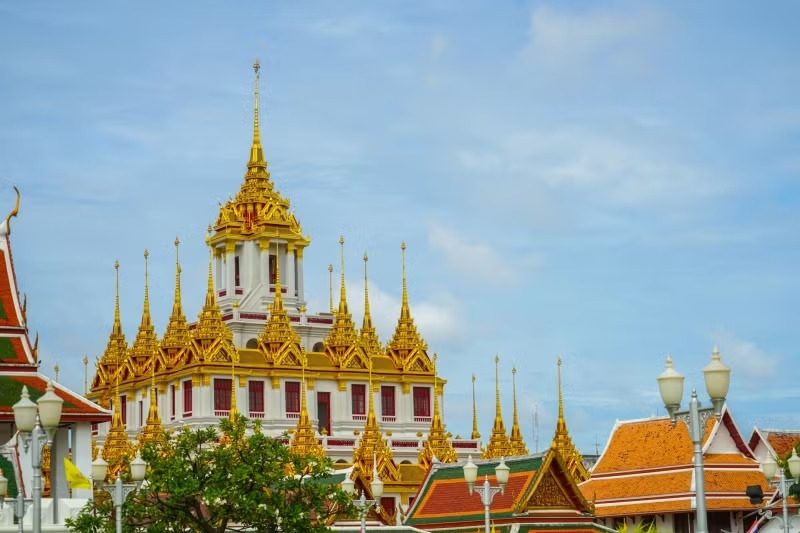
Hire a Private Tour Guide in Bangkok: Pros and Cons
Bangkok, Thailand
Check out our UPDATED VERSION:Hiring A Guide In Bangkok - Pros & Cons The pros and cons of hiring a private tour guide in Bangkok are pretty straig...
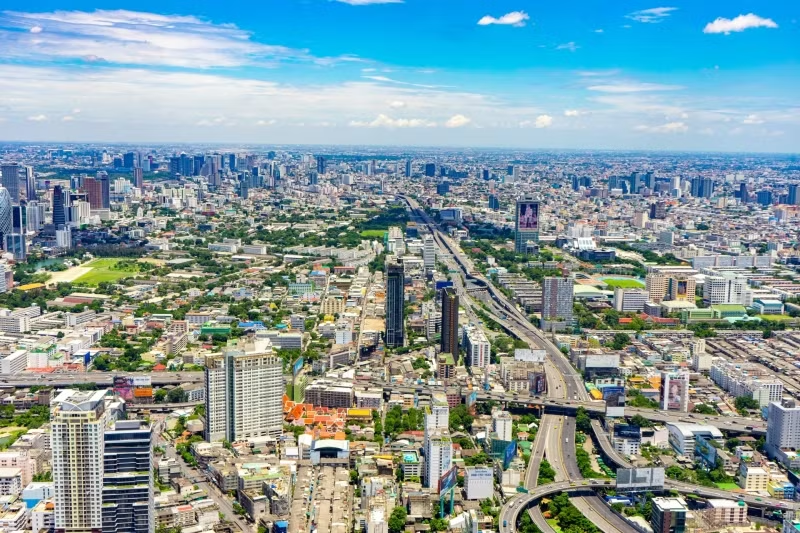
3 Days in Bangkok: Perfect Itinerary for First Timers
3 days in bangkok is possible thailand is always one of the biggest tourist destinations in southeast asia. not only are you going to experience th....

7 Unusual Things to Do in Bangkok - Best Tips
Do you love adventure and exploring hidden places if you so, let’s have a trip to hidden spots and do some unusual things in bangkok, thailand. as ....
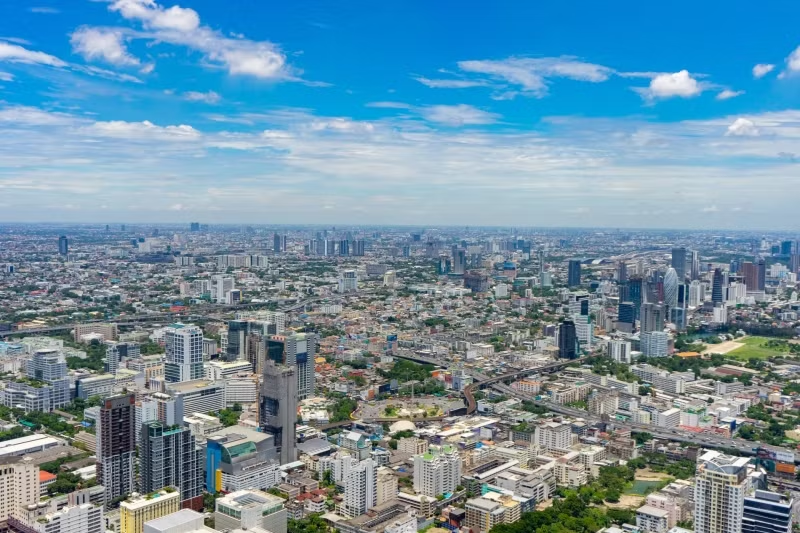
11 Things To Do in Bangkok, Thailand 2020
If you’re looking for things to do in bangkok, you’ve come to the right place. bangkok is a bustling metropolis that is in the midst of developing i..., follow us on social media.

12 Of The Best Countries For Digital Nomads
- Thailand: Being ranked as the best country for digital nomads, Thailand offers a peaceful environment, low cost of living, stable internet, and opportunities for travel.
- Japan: While Tokyo can be expensive, Japan has amazing suburbs and towns perfect for digital nomads. The government shows preferential treatment to those making good money and stimulating the economy.
- The Netherlands: Known for its progressive policies and state-of-the-art infrastructure, the Netherlands is a top European destination for digital nomads. Amsterdam is a popular city for expats and travelers, and the country offers a digital nomads visa.
Digital nomads are people who work as they travel . These people work online; hence, they can live in different countries as long as they have access to electricity, the Internet, and other amenities. Being a digital nomad is interesting as one can accomplish their travel needs and at the same time earn a living.
The advantage of being a digital nomad is the discovery of new places all the time. However, some things affect the life of a digital nomad . One of them, and a challenge to many, are choosing a country to go to. When one chooses a good country, it affects things such as peace, cost of living, people, technology, living conditions, entertainment, and other crucial things for the life of a digital nomad. Here are the best countries to pick .
UPDATE: 2023/08/19 19:04 EST BY NOAH STAATS
We've Found More Digital Nomad-Friendly Countries To Consider
This article has two more countries for digital nomads, as well as tips for visa applications and government policy surrounding this concept. From Europe to Asia and even South America, these are some of the best countries to consider moving as a digital worker in 2023!
- Thailand is often regarded as one of the best, most peaceful Asian countries.
- The low cost of living is perfect for those with jobs from wealthier nations.
Thailand has been ranked top of the list as the best for digital nomads. The country gains the ranking as a result of several factors. Thailand is a peaceful country in Asia, and peace means a better life. Additionally, the country has a considerably affordable cost of living well for a digital nomad.
Another factor is that it's a party country with several islands, giving one a serene environment to work. With the country having stable internet and neighboring countries such as Malaysia, Indonesia, and Taiwan, there are many opportunities to travel. It is a calm area with incredible landscapes and people.
RELATED: 10 Epic Things To Enjoy In Thailand
- Suburbs of Tokyo are amazing for digital nomads.
- Japan favors successful digital nomads and creators.
A lesser-talked-about option for digital nomads needing new scenery is Japan. Although cities like Tokyo can be expensive, there are many futuristic suburbs to consider living in, as well as old-school villages and towns in other regions.
Japan doesn't have a specialty visa for digital nomads, but the government does show preferential treatment to those making good money and stimulating the Japanese economy.
The Netherlands
- The Netherlands offers a 'digital nomads visa.'
- Amsterdam is a top city for expats and travelers alike.
One of the best European countries for digital nomads is the Netherlands. Here is where global cultures unite, and many online working people move each year. Known for its progressive policies, friendly people, and state-of-the-art infrastructure, the Netherlands is the country of the future.
- Indonesia is home to many expats and digital nomads.
- The cost of living is low, and many locals speak different languages.
Located in Asia, Indonesia, and especially Bali has become the place for many people. Not only digital nomads but also people looking for a place to retire are moving to Bali. The main reason for this is that Bali is a calm, peaceful, affordable area with amazing lush jungles, gorgeous beaches, strong internet, and luxury villas.
Bali serves as the most attractive place for tourists in Indonesia. The area also has a good transport system making it easily accessible. The ease of getting a visa into the country contributes greatly to making the country friendly for digital nomadism.
- Vietnam, although not developed, is a stunning country.
- The cost of living is very low.
Although Vietnam is not a developed country, it still provides an excellent environment for digital nomads. The country is peaceful and very welcoming for foreigners ; it has a low crime rate, good weather, and easy to balance work life and fun. Vietnam is also a country that has so many untouched natural features making it very attractive and calm.
The country is fast-growing, with good infrastructure coming up. It also has a very affordable lifestyle, making it ideal for a digital nomad. Food and adventure are some things a digital nomad will enjoy in this country. It is estimated that one can live in a one-bedroom apartment in the city and take care of food for just $420 monthly.
- Many cities in Mexico offer affordable rents and homes for digital nomads.
Many people do not know enough about Mexico, but the digital nomads have been discovering enough, and they like it. The country is very much open to both entrepreneurs and tourists. Mexico has good people, and the country is doing considerably well in terms of the economy.
One of the benefits of living in Mexico is the low cost of living. Another thing is the excellent food and gorgeous scenery. The best urban centers to choose from include Playa del Carmen, Mexico City, Tulum, and Oaxaca.
RELATED: Mexico City Is Better Viewed From The Air (In A Hot Air Balloon)
- Iceland is one of the most peaceful, clean, and eco-conscious countries on Earth.
- Digital nomads can experience various landscapes here, including tropical.
Iceland is one of the most peaceful, small countries but with a good economy. It has a tropical climate that can be chilly, but the opportunities are good. Travelers do not have to worry about the internet as it is good. Additionally, Iceland has amazing landscapes that will give any digital nomad a good experience all year round.
The country has long-term visas for those working remotely; it serves as a smooth way to live there. The people are also welcoming, and the standard of living is also good.
- Sri Lanka is naturally abundant, as well as offering digital nomads affordable living conditions.
Sri Lanka has a low cost of living that will give a digital nomad an easy time. The country is full of green rolling mountains, powdery sand, and coral reefs that will always provide something new for someone to see or experience.
It is a good country for remote working as it has good people and amazing weather of around 300C. It is also easy to get a visa to the country, and there are many attractions.
- Estonia is one of the various EU nations offering 'e-residency.'
Estonia is one of the countries offering e-residency. It is a small country with a digital nomad visa, making it easy for digital nomads to move into the country. Economically, the country is doing well, and living costs are good.
Estonia is full of amazing Medieval architecture that will impress any visitor. Other things include cultural events and food. It also has many other expats working for international companies.
- Germany is a developed nation, boasting a booming tech industry and state-of-the-art infrastructure.
- Digital nomads can expect to spend more living here, however.
Although Germany is quite a developed country, and the cost of living might be higher than the other countries listed here, it is a good place for a digital nomad. However, one has to be ready for a higher cost of living.
On the good part, Germany is a well-developed country with amazing technology, infrastructure, transport, internet, and business opportunities. There are many international companies in the country. Germany also has many attractive places to visit that will always interest visitors.
RELATED: Photos Of The Best Beaches In Germany To Prove They're Worth A Trip
- Colombia is filled with natural, untouched scenery.
- There is a low cost of living here, which is perfect for digital nomads.
Colombia is the place to go for a digital nomad looking for a laid backcountry with a lot of untouched nature, good people, and affordable living. The country is developing, and as a result, it has good internet, amazing food, and friendly people. There are many tourist attractions as well.
- Serbia offers visas to those working remotely.
- This is one of the cheapest places to live in Europe.
Serbia is a country that will surprise many people on this list. However, the country is now offering free visas for people looking to work remotely. It is one of the countries with the lowest cost of living in Europe. At the same time, it has developed cities like Belgrade and Novi Sad with great modern infrastructure and historical architecture making it a good place for a digital nomad.
NEXT: This Is What It's Like To Visit Serbia (And Why Socialites Will Appreciate It)
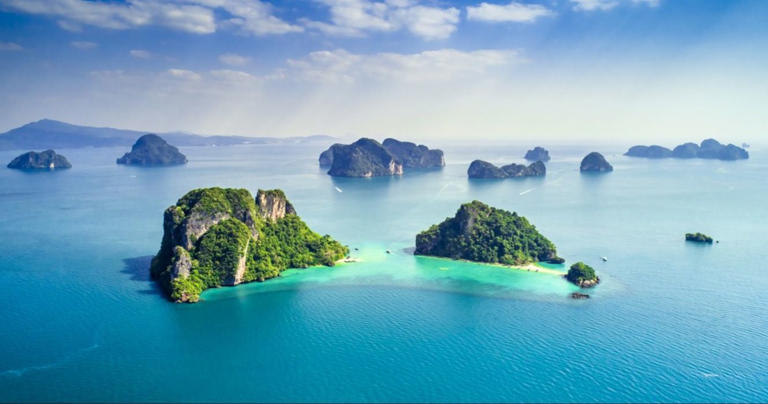
We've detected unusual activity from your computer network
To continue, please click the box below to let us know you're not a robot.
Why did this happen?
Please make sure your browser supports JavaScript and cookies and that you are not blocking them from loading. For more information you can review our Terms of Service and Cookie Policy .
For inquiries related to this message please contact our support team and provide the reference ID below.

This website is managed by Siam Legal International - a law firm in Thailand
Thailand Travel Restrictions for August 2023
- Travelers entering Thailand are not required to show Proof of Vaccination or COVID-19 test results. All travelers can freely travel to Thailand without any COVID restriction.
- Travelers are not required to obtain Thailand Pass or Certificate of Entry (COE). There is no need to download any mobile app.
- Travel Insurance is still highly recommended when you travel to Thailand.
- Buy your Travel Insurance now at AXA Thailand .
- Book your Hotel in Thailand at Agoda.com
- Travelers may join our Facebook Group to ask questions, get help and read the latest developments: https://www.facebook.com/groups/howtoenterthailand
How to Stay in Thailand for 5 to 20 Years – the Thai Elite Visa Experience
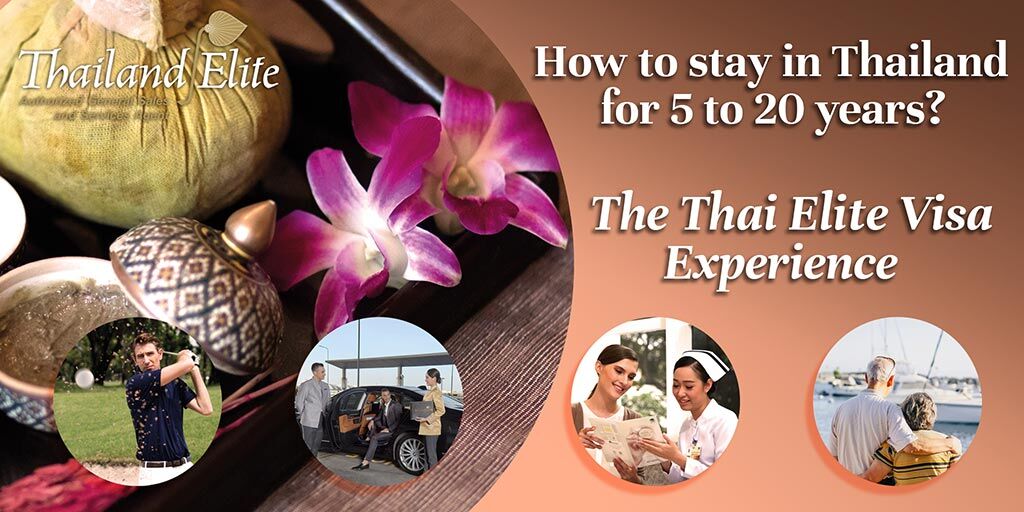
Do you want to stay in Thailand on a long-term visa? We’re proud to announce that your wishes have been granted. The Thai Elite Visa grants you 5 to 20 years of stay within the country along with all sorts of VIP-level privileges, netting you an unforgettable venture throughout every nook and cranny of the Thai peninsula.
Aimed squarely at digital nomads, travelers, entrepreneurs, investors, families, and retirees, having a Thai Elite Visa simply makes life all the more better while in the Land of Smiles. If you’re unsure of which package to apply for or whether it’s worth your time and smile, feel free to hire one of Siam Legal’s Thailand Elite consultants.
Siam Legal is the authorized corporate sales and service agent of Thailand Elite visas in the USA, UK, and Australia ; our reputation in the field is unprecedented and our team is equipped with immense insights and knowledge on Thailand Elite.
Become an official member of Thailand Elite today to receive the following perks:
- Multiple entry Visa valid for 5 to 20 years
- VIP assistance on arrival and departure at the airport
- Expedited immigration and passport control processing
- Exclusive arrival and departure VIP lounge
- Immigration services such as 90-day reporting
- Assistance in processing driver’s license and opening a bank account

Should you ever consider Siam Legal as your go-to agent, you are entitled to some wonderful privileges to help boost your enjoyment of Thailand:
- 24/7 VIP phone number provided by Siam Legal
- Gift Vouchers from 6,000 THB to 20,000 THB
- 2 hours of legal consultation with our legal advisor (value 10,000 THB)
- 2 hours of immigration consultation (value 6,000 THB)
- Free Notary Public service (one document, one-time value 3,000 THB)
- Free Bank Account Opening Service
Important Announcement
Thailand Privilege has formerly announced that all current Thai Elite Visa packages will be discontinued and replaced with new packages on October 1, 2023.
Applicants have until September 15, 2023, at 4:30 PM (Bangkok time, GMT +7) to submit their application for any current options.
October 1, 2023, will see the unveiling of the new Thai Elite Visa packages. Currently, there are no updates regarding these upcoming packages and replacements; however, they might be more expensive than the current ones on offer.
Anyone thinking of applying for any of the current packages or seeking more affordable offerings should consider submitting their application as soon as possible.
Holders of a 5-year Elite Easy Access membership will be glad to hear that the August 15, 2023 deadline to upgrade to a 20-year Thai Elite membership has been revoked. Members can upgrade to either an Elite Superiority Extension or Elite Ultimate Privilege package at any time, as long as it’s prior to 3 months before their Thai Elite Visa expires.
For more insights into the latest update that has just been rolled out, please feel free to consult: https://www.siam-legal.com/thailand-visa/thailand-elite-visa-program-changes.php
Interested in any of the current options before these end up being discontinued? Click this link to apply now: www.siam-legal.com/thailandelite
Going Going Almost Gone – The Best Thai Elite Visa Deal
If you’re uncertain about which Thai Elite membership to purchase, we at Siam Legal have proposed the best possible package worth every penny.
Introducing the Elite Superiority Extension Package – a 20-year Thailand Elite membership that is affordable, convenient, and ideal for anyone looking for a long-term respite. With a stay of up to 20 years, this Thai Elite Visa package rewards applicants with privileges that not even other long-term visas (retirement, marriage, ED, etc) can offer.
Affordability
- This Thai Elite package costs 1 Million THB for a membership lasting 20 years (this is equivalent to 50,000 THB per year) but with no annual, renewal, or additional fees that applicants will need to contend with.
- With other long-term visas, applicants can expect to pay between 35,000 to 40,000 THB per year when purchasing these through an agent, along with numerous other fees such as renewal, re-entry, and other additional costs.
Free 90-Day Reporting
- As a member, you are able to hire an agent to conduct your mandatory 90-day reporting, free of charge.
- Other visa holders are not given this privilege, needing to spend 2,000 THB in order to hire an agent.
No Re-entry permits
- Enjoy unlimited re-entries throughout the whole 20-year duration, with each 5-year visa being easily renewable, free of charge.
- With other visas, re-entry permits are often required. This means you would need to pay 3,800 THB per entry.
No Health Insurance Requirements
- Although recommended, health insurances are 100% optional and are not a requirement for this 20-year Thailand Elite membership, or any other Elite memberships.
- Some visas require health insurance. The Retirement OA visa for example requires applicants to purchase insurance valued at over 100,000 THB.
No Banking or Finance Requirements
- As an applicant, you can bypass any financial requirements, with no need to show how much income you earn or how many savings you have on hand.
- These requirements are a mainstay of other visas and require proof of funds to be eligible. The Retirement OX visa requires 3 Million THB in savings every 6 months.
Ease and Flexibility
- This 20-year membership is easy and stress-free to apply for, involves no hoops to jump through, and can be done entirely online.
- A draw of the Thai Elite Visa is that it avoids pitfalls that plague other visa applications. Other applications undergo price changes, long wait times, and more.
Immigration Fast-tracking
- Access the exclusive immigration fast-tracking lane at Thai international airports upon arrival, letting you complete immigration clearance without having to wait for hours.
- For other visas, foreigners would need to wait in long queues at airports just to pass immigration checks.
Exclusive VIP Privileges
- Experience what it’s like to be a celebrity in Thailand with enticing perks ranging from special discounts to VIP airport services to even free immigration support.
- Other visas do not offer any VIP-level privileges that are compulsory additions to the 20-year Thai Elite Visa.
Cheaper than the New Packages
- There could be massive price increases and different privileges with the upcoming Thai Elite Visa options, so act fast!
For a more detailed rundown on why you should consider this Thai Elite Visa and how it compares to other visas in terms of cost, you may check this page here: https://www.siam-legal.com/thai-elite-visa/the-best-thai-elite-visa-deal/
Related Posts
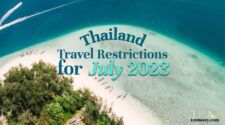
Thailand Travel Restrictions for July 2023
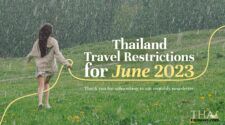
Thailand Travel Restrictions for June 2023
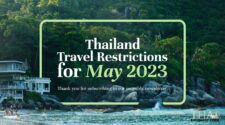
Thailand Travel Restrictions for May 2023
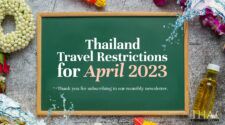
Thailand Travel Restrictions for April 2023
Leave a comment cancel reply.
Your email address will not be published. Required fields are marked *
This form collects your name, email and content so that we can keep track of the comments placed on the website. By submitting this form, you accepted and agreed on our privacy policy and terms .

IMAGES
VIDEO
COMMENTS
Thailand Travel Restrictions 2023. Last updated on January 9, 2023 at 5 PM. Travelers entering Thailand are not required to show Proof of Vaccination or COVID-19 test results. All travelers can freely travel to Thailand without any COVID restrictions. Travelers are not required to obtain a Thailand Pass or Certificate of Entry (COE).
For up-to-date information and weekly updates regarding current Thailand travel restrictions, please visit the Weekly Updates for Thailand Travel Restrictions. As of October 1, 2022, Thailand will no longer have COVID entry requirements. ... 2023 >Airline passengers 18 years old or older must provide proof of full vaccination.
Thailand Travel Restrictions for April 2023. Travelers entering Thailand are not required to show Proof of Vaccination or COVID-19 test results. All travelers can freely travel to Thailand without any COVID restrictions. ... Thailand Travel Updates; Facebook. This website is managed by Siam Legal International - a law firm in Thailand. Thailand ...
Read the country information page for additional information on travel to Thailand. If you decide to travel to Thailand: Enroll in the Smart Traveler Enrollment Program (STEP) to receive Alerts and make it easier to locate you in an emergency. Follow the Department of State on Facebook and Twitter. Review the Country Security Report for Thailand.
Updated on 13 February, 2023, at 09.00 Hrs. Bangkok - The Tourism Authority of Thailand (TAT) would like to clarify that Thailand continues to welcome all international tourists under the fully-reopen-to-tourism policy that was introduced on 1 October, 2022.. Thailand's Deputy Prime Minister and Minister of Public Health, H.E. Mr. Anutin Charnvirakul, said "International travellers ...
From 9-31 January 2023, Thailand will require all visitors to be fully vaccinated, and some to purchase travel insurance. Here's the full details. In a remarkable flip flop, even by Thailand's standards, the vaccination requirement has been rescinded. On Friday, Thailand announced that it would impose a vaccination requirement for all ...
The amended rules do not apply to travellers under 18, Thai nationals or those transiting in Thailand. Holidaymakers visiting Thailand from China or other destinations whose requirements might prevent their re-entry if they test positive while on holiday will also need to produce proof of a travel health insurance policy. Coverage must include a minimum of $10,000 for Covid-19 treatment during ...
Thai authorities have issued orders to slightly increase COVID-19-related restrictions as of Jan. 6 amid rising international disease activity. Under the new directives, all incoming international travelers must provide proof of at least two vaccinations and health insurance with COVID-19 coverage. Outbound passengers traveling to a country ...
Travelers holding US passports can enter Thailand for tourism purposes without the need to obtain a visa for stays up to 30 days on each visit. Thailand temporarily extended this visa exemption to 45 days for arrivals previously. However, as of April 2023, visa-free entries has reverted back to 30 days. Travelers can always extend the standard ...
*Further Update January 9, 2023: In a last-minute decision, Thailand decided to cancel the reintroduction of proof of vaccination and remain open restriction-free. This causes mass confusion for many tourists, including some who would have already canceled travel plans.
Call us in Washington, D.C. at 1-888-407-4747 (toll-free in the United States and Canada) or 1-202-501-4444 (from all other countries) from 8:00 a.m. to 8:00 p.m., Eastern Standard Time, Monday through Friday (except U.S. federal holidays). See the State Department's travel website for the Worldwide Caution and Travel Advisories.
Thailand Travel Restrictions for July 2023. While Thailand's borders are open to pretty much everyone, travel restrictions still exist for tourists to look into. These are changing every month, with new rules being added and older regulations being revoked. Here is an updated list:
Home /Situation Updates. Situation Updates. Round-the-clock updates on issues affecting tourism and travel in Thailand; such as, natural disasters and health concerns with fast facts, figures and data about the current situation in the Kingdom. Jan- 2023 -. 27 January.
The official site of Tourism Authority of Thailand. Amazing Thailand, Travel information, Travel guide, maps, hotels, accommodation, attractions, events & festivals, food, culture, shopping information to help you plan your Thailand vacations.
The TAT News microsite at www.tatnews.org is the official online newsroom of the Tourism Authority of Thailand (TAT). The TAT News is committed to supporting international media by providing the latest press releases, festivals & events, other Thai travel news as well as compelling Thailand travel features and videos.
Last updated: May 17, 2023. The CDC's Order requiring proof of vaccination for non-U.S. citizen nonimmigrants to travel to the United States is no longer in effect. For more information see Requirement for Proof of COVID-19 Vaccination for Air Passengers. Check the CDC website for additional information and Frequently Asked Questions.
Still current at: 12 April 2024 Updated: 19 January 2024 Latest update: Information that while cannabis is legal in Thailand, be aware of the next place you are travelling to, where it may be ...
Latest update: We've reviewed our ... On 3 October 2023, 3 people were killed and 4 injured in a shooting at the Siam Paragon mall in Bangkok. On 6 October 2022, 36 people were killed in a shooting and stabbing incident in Nong Bua Lamphu province. ... Road travel. Thailand has one of the highest traffic-related fatality rates in the world ...
Quick Thailand Travel Trends . A speedy look at Thailand's monthly tourist visiting trends . January to February - The Chinese new year is set to attract 30,000 Chinese visitors and 500,000 international travelers (2023).; March & April - 543,000 guests flew in for The Songkran Festival. Most of them were from China, looking to splash in the traditional Thai new year with plenty of ...
Last year's TTM+ generated about 1.29 billion baht (US$38 million) revenue for the Thai economy. Brought to you by Tourism Authority of Thailand. Fully on-site this year, the upcoming Thailand Travel Mart Plus (TTM+) 2023, organised by the Tourism Authority of Thailand (TAT), will be held from May 31 to June 2 at the Queen Sirikit National ...
The validity of insurance must cover the duration of stay in Thailand +7 days. Buy your Travel Insurance now at AXA Thailand. 1. Passport and Thai Visa. From October 1, 2022 until March 31, 2023, travelers will be allowed to stay for 30 days or 45 days without prior approval of a Thai visa.
Thailand: Being ranked as the best country for digital nomads, Thailand offers a peaceful environment, low cost of living, stable internet, and opportunities for travel. ... UPDATE: 2023/08/19 19 ...
Push for Visa-Free Entry for Indian Visitors in Thailand. February 28, 2024February 28, 2024. Thailand's tourism officials have pushed the government to start talks about a long-term visa-free agreement between Thailand and India. As of February 18, visitors from India ranked fifth in terms of arrivals, totaling around 260,000 tourists.
Thailand's cabinet approved a plan to allow Russian tourists who enter the country without a visa to stay for a maximum of two months as the Southeast Asian country bets on tourism to support an ...
Holders of a 5-year Elite Easy Access membership will be glad to hear that the August 15, 2023 deadline to upgrade to a 20-year Thai Elite membership has been revoked. Members can upgrade to either an Elite Superiority Extension or Elite Ultimate Privilege package at any time, as long as it's prior to 3 months before their Thai Elite Visa ...